About Assisted LivingAssisted living facilities offer housing and care for active seniors who may need support with activities of daily living, like bathing, dressing, and medication management.Complete guide to assisted livingBest of 2025 Assisted Living Winners
About Memory CareMemory care facilities provide housing, care, and therapies for seniors who have Alzheimer’s disease or other forms of dementia in an environment designed to reduce confusion and prevent wandering. Complete guide to memory careBest of 2025 Memory Care Winners
About Independent LivingIndependent living facilities offer convenient, hassle-free living in a social environment for seniors who are active, healthy, and able to live on their own.Complete guide to independent livingBest of 2025 Independent Living Winners
About Home Care Home care relies on trained aides to provide companionship and non-medical care for seniors living at home. Complete guide to home careBest of 2025 Home Care Winners
About Senior LivingSenior living is a term used to describe various housing and care options for older adults from maintenance-free, 55+ facilities for active seniors, to secure, fully staffed facilities for seniors with Alzheimer's or dementia.
Complete guide to senior livingFind senior living facilities near you
About Nursing HomesNursing homes provide short-and long-term care for seniors who have physical or mental health conditions that require 24-hour nursing and personal care.Complete guide to Nursing Homes
About Senior ApartmentsSenior apartments offer accessible, no-frills living for seniors who are generally active, healthy, and able to live on their own.Complete guide to Senior Apartments
About Care HomesResidential care homes are shared neighborhood homes for seniors who need a live-in caregiver to assist with activities of daily living, like dressing and bathing.Complete guide to care homes
Veteran ResourcesVA benefits for long-term care, such as Aid and Attendance benefits, can help eligible veterans and their surviving spouses pay for senior care.Guide to VA benefits for long-term care
More About Veterans Benefits
Senior Living Awards
How Our Service Works
Caregiver ResourcesAdd Review(866) 374-4058
Talk to a local advisor for FREE
Education
- B.A. and M.A. from the University of Florida
About Ashley
Ashley Huntsberry-Lett is the Manager of Content Strategy at A Place for Mom. She has over a decade of experience writing, editing, and planning content for family caregivers on topics like senior health conditions, burnout, long-term care options and costs, estate planning, VA benefits, and Medicaid eligibility. Ashley has also moderated AgingCare.com’s popular Caregiver Forum since 2018. She holds a bachelor's degree in English and a master's degree in mass communication from the University of Florida.
Ashley's picks

6 min
Last updated August 19, 2024
Dementia forums provide support and answer questions for caregivers and people with dementia.

5 min
Last updated August 15, 2024
Learn how elder law attorneys help with long-term care and estate planning as well as how they advocate for their client's rights.

20 min
Last updated July 10, 2024
With an ADLs checklist to track changes in a senior's ability to perform basic tasks, you can assess their well-being and need for care.
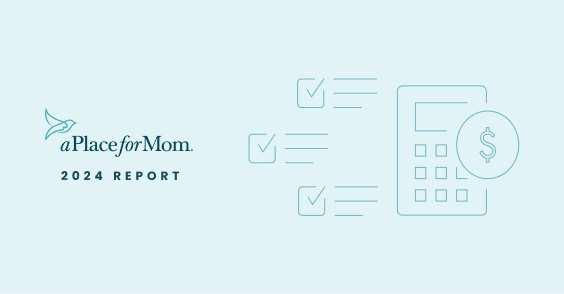
1 min
Last updated October 16, 2023
Explore A Place for Mom's Cost of Care Report to learn about the median costs of assisted living, memory care, and more.
More from Ashley

24 min
Last updated July 17, 2025
Wandering is common among people who have dementia. Learn what causes it, how to prevent it, and what to do if it does happen.

10 min
Last updated June 18, 2025
When you hire a caregiver directly, you take on the same risks as other employers, including the risk of legal action.
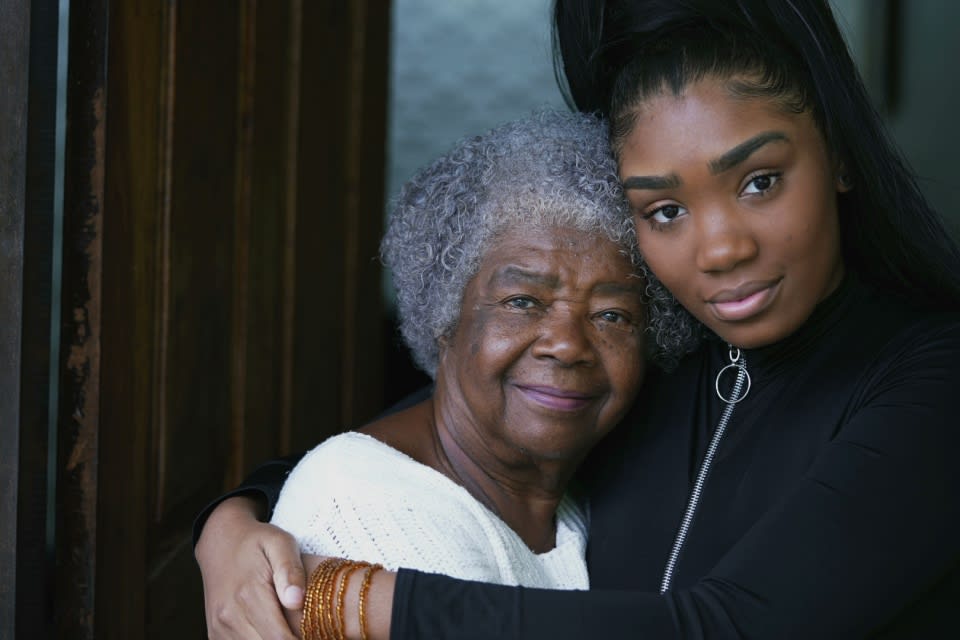
10 min
Last updated June 18, 2025
Caring for elderly parents at home is a matter of logistics and emotions. Learn how a compassionate approach can help.
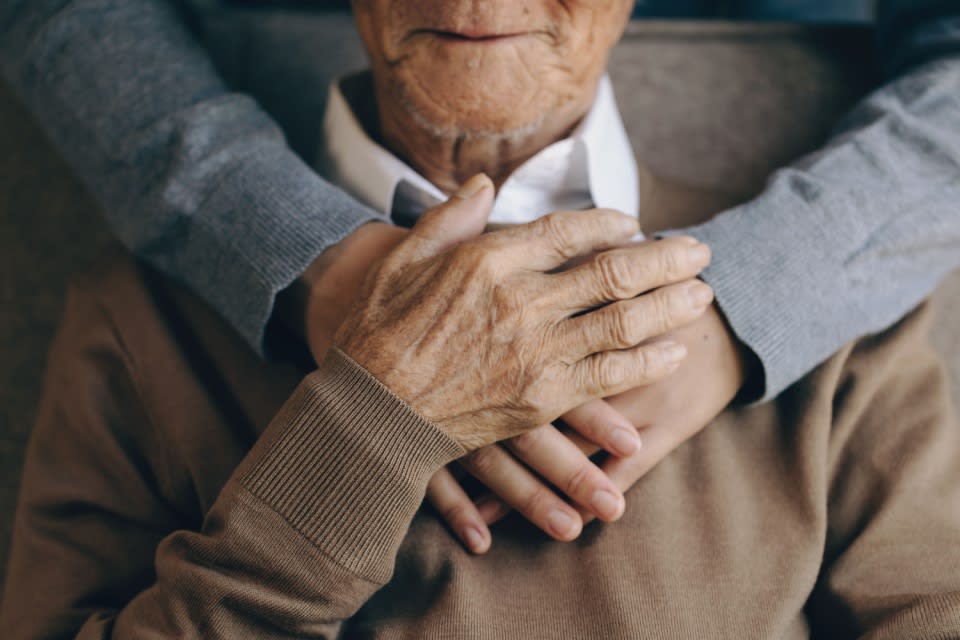
6 min
Last updated June 18, 2025
Medicare, Medicaid, and VA health benefits generally cover all costs of hospice care at home.

12 min
Last updated June 18, 2025
Many Americans eventually rely on Medicaid for long-term care. Understanding its look-back period is key to avoiding penalties.

19 min
Last updated June 9, 2025
People who have dementia generally think about the same things they did before their diagnosis, but how they think changes.

9 min
Last updated June 6, 2025
If your dad has dementia, Father’s Day gifts such as music, cozy lamps, and talking photo albums can make this holiday special.

16 min
Last updated June 6, 2025
Long-term care insurance helps pay for care if set up in advance. Benefits paid help fund assisted living, home care, and more.

6 min
Last updated May 20, 2025
Seniors can use HSAs to pay for certain long-term care costs, allowing them to offset the overall cost of senior living.

8 min
Last updated May 12, 2025
Learn how to approach private financial topics now to help ease conversations about long-term care planning in the future.
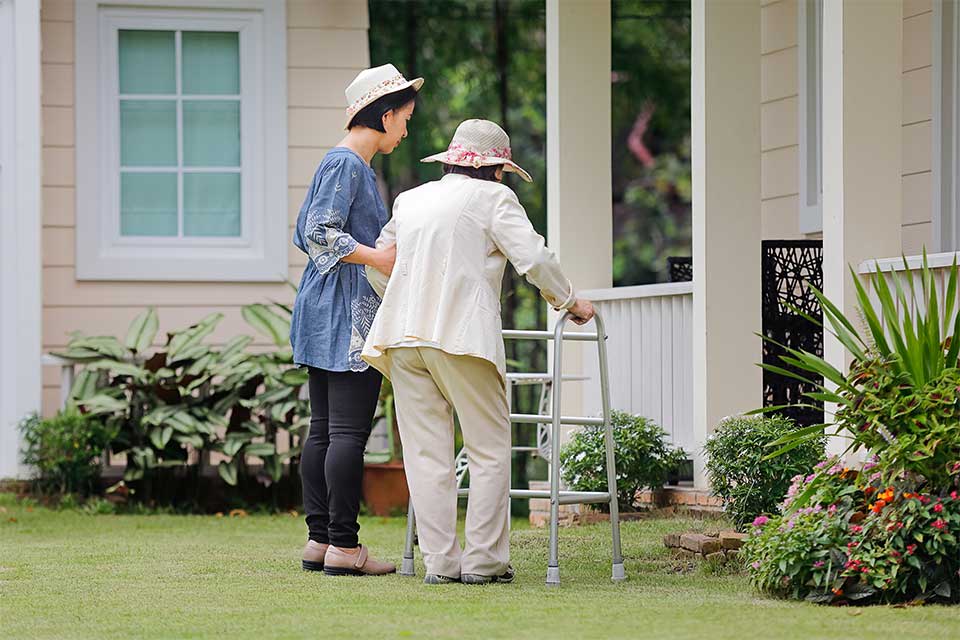
11 min
Last updated May 9, 2025
As a worker and a caregiver, find out if you qualify for up to 12 weeks of FMLA-protected leave in a 12-month period.

14 min
Last updated April 22, 2025
Seniors with limited funds may be eligible for benefits through Medicare, Medicaid, the VA, Social Security, and more.

7 min
Last updated April 21, 2025
Learn what to do when your loved one still needs nursing home care after Medicare coverage ends.

11 min
Last updated April 9, 2025
Learn about the financial and emotional costs of caring for a loved one living with dementia at home.

13 min
Last updated April 4, 2025
Review the median cost of in-home care in each state, and explore the different factors that contribute to cost variations.

6 min
Last updated March 31, 2025
Learn about the cost of 24/7 home care and explore different factors that affect the overall cost.

16 min
Last updated March 28, 2025
Learn the differences in assisted living and nursing home costs, services, and lifestyles to make the best senior care decision.

12 min
Last updated March 28, 2025
Medicare, Medicaid, Social Security, and VA programs can help low-income adults cover some of the costs of senior care.

8 min
Last updated March 28, 2025
Learn more about the VA’s two tax-free pensions for low-income veterans and their dependent family members.

15 min
Last updated March 27, 2025
Use this guide to learn about all ways to pay for senior living, including Medicaid, VA benefits, and more.

18 min
Last updated March 21, 2025
Learn about the costs of independent living and how they vary from state to state.

15 min
Last updated March 11, 2025
Explore using private and public payment options, like savings, Medicaid, and veterans benefits, to cover the costs of memory care.

29 min
Last updated March 4, 2025
Learn which Social Security benefits, including optional state supplement (OSS) payments, can be used to pay for assisted living.

8 min
Last updated February 27, 2025
Learn what Medicaid will and won’t pay for when it comes to memory care services and facilities.

11 min
Last updated February 26, 2025
Learn what nursing home costs qualify for tax deductions and how to maximize your savings this tax season.

15 min
Last updated February 26, 2025
Explore common tax topics for caregivers, such as tax credits and deductions, and who qualifies as a dependent.

9 min
Last updated February 26, 2025
Find out which assisted living expenses you can deduct on your taxes and how to qualify.

9 min
Last updated February 25, 2025
Learn which home care and home health care expenses, including home modifications, are eligible for a tax deduction.

9 min
Last updated February 19, 2025
Learn all about Medicare home health care coverage, including what exactly it covers, duration, and eligibility.

4 min
Last updated February 18, 2025
Explore the benefits of independent living communities and how they can enhance safety, wellness, and enjoyment during retirement.

18 min
Last updated February 18, 2025
Learn about the median cost of assisted living in your state, as well as the factors that influence it.

23 min
Last updated February 14, 2025
Learn about the most recent national and state median costs of memory care, what's included, and factors that influence cost.

16 min
Last updated February 12, 2025
Learn all about Medicaid long-term care eligibility and coverage.
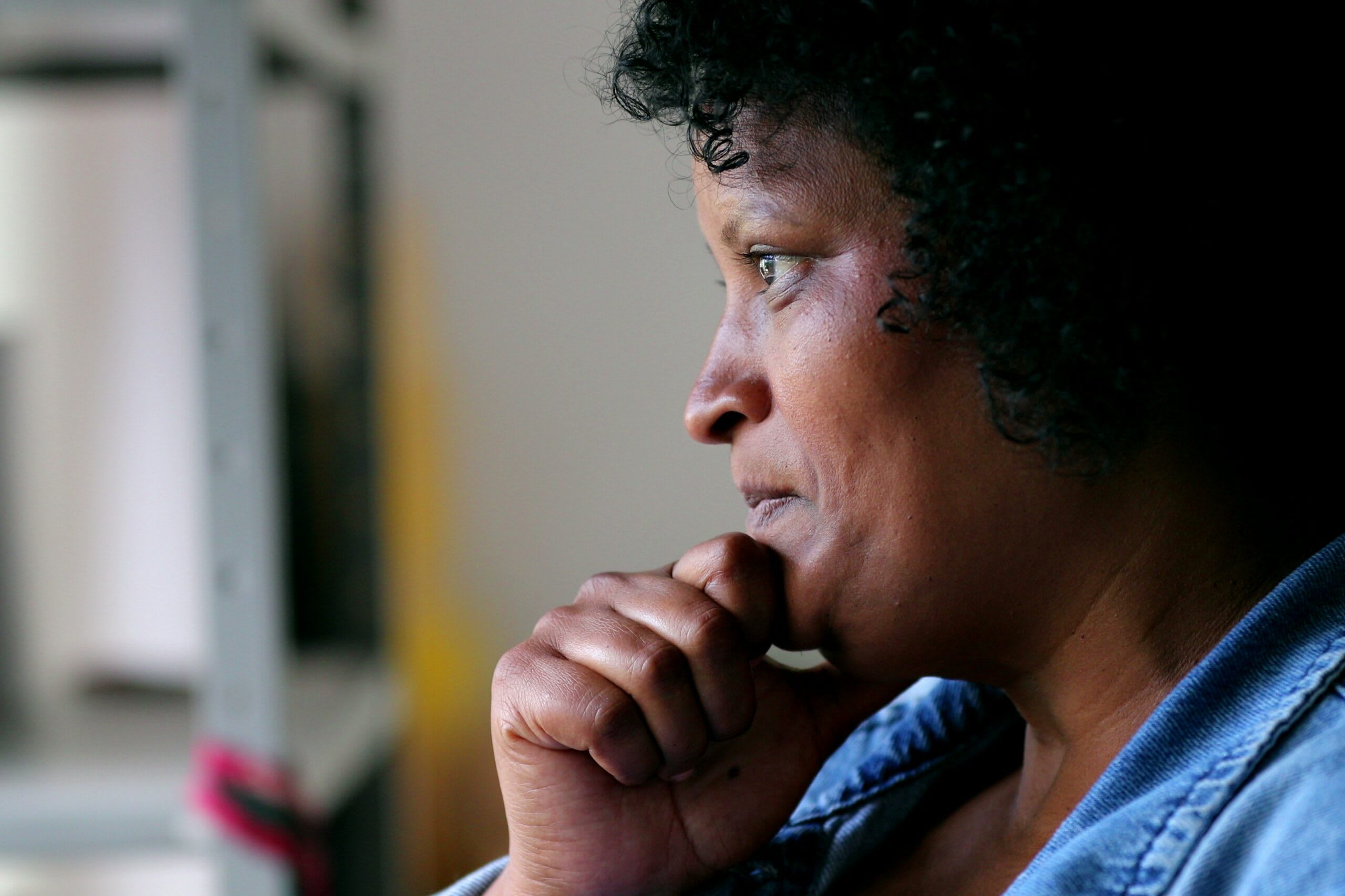
17 min
Last updated February 11, 2025
Protect your health and well-being by learning how to spot, prevent, and treat burnout caused by prolonged caregiver stress.

18 min
Last updated January 28, 2025
If your loved one is experiencing loss of appetite, it’s important to understand the causes and possible solutions.

12 min
Last updated January 23, 2025
Explore VA nursing home options, eligibility, and costs to ensure your veteran loved one gets the care they need.

28 min
Last updated December 5, 2024
Use this gift guide to help your loved one with dementia feel cared for with a thoughtful gift.

10 min
Last updated December 5, 2024
Get the scoop on sugar alternatives, including healthier options, using them in the kitchen, and reducing sugar in your diet.

13 min
Last updated December 5, 2024
The best ideas for senior gifts are those that involve entertainment, practicality, technology, health and fitness, hobbies, or personalization.

3 min
Last updated December 4, 2024
Explore questions and ideas to help you start meaningful conversations with older loved ones.

8 min
Last updated November 9, 2024
Learn how pneumonia affects elderly adults, what symptoms to look for, how it’s treated, and how to prevent it.

16 min
Last updated November 8, 2024
Find out what to watch for if you think your parent might need help at home.
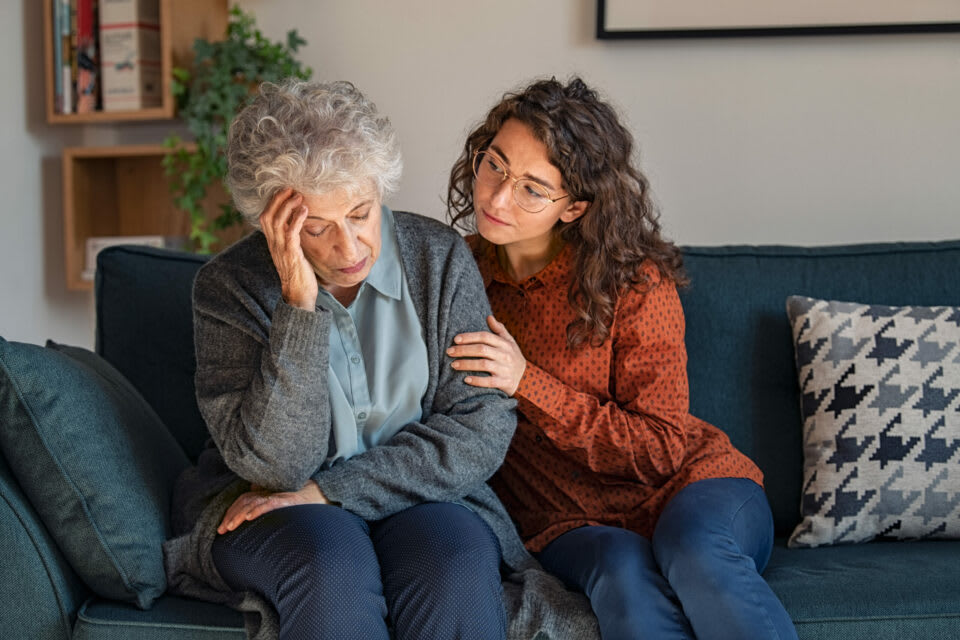
12 min
Last updated October 29, 2024
Paranoia and angry, suspicious behavior can result from forgetfulness dementia creates; being patient is one of many helpful tips.
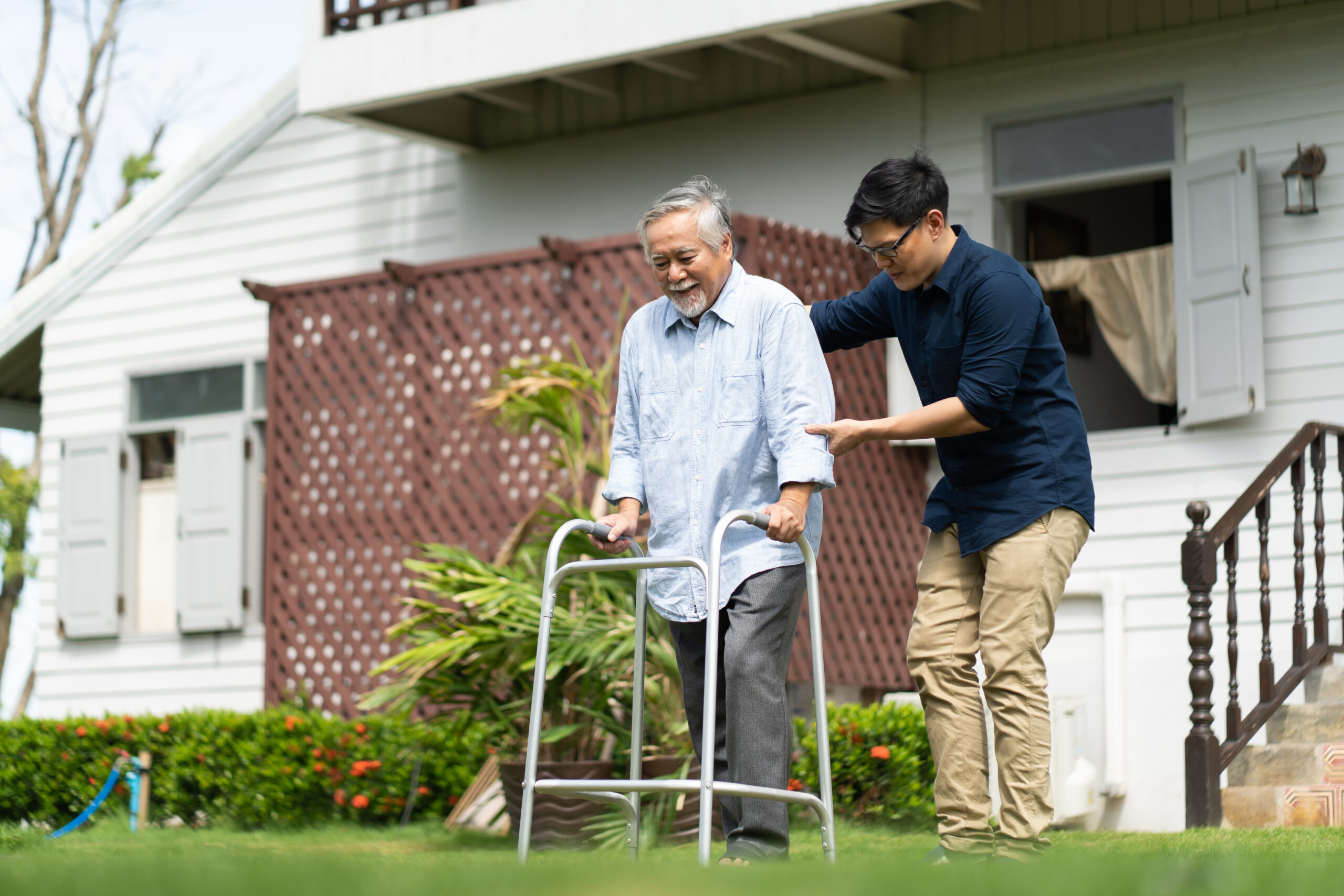
38 min
Last updated October 23, 2024
Learn about programs and options that can help you get paid to take care of your loved one at home.

21 min
Last updated October 12, 2024
While using a reverse mortgage to finance senior care lets you own your home, the funds are limited and have strings attached.

13 min
Last updated October 11, 2024
Hip fractures are a common and serious injury for seniors. Learn the symptoms of a hip fracture and the risk factors for seniors.
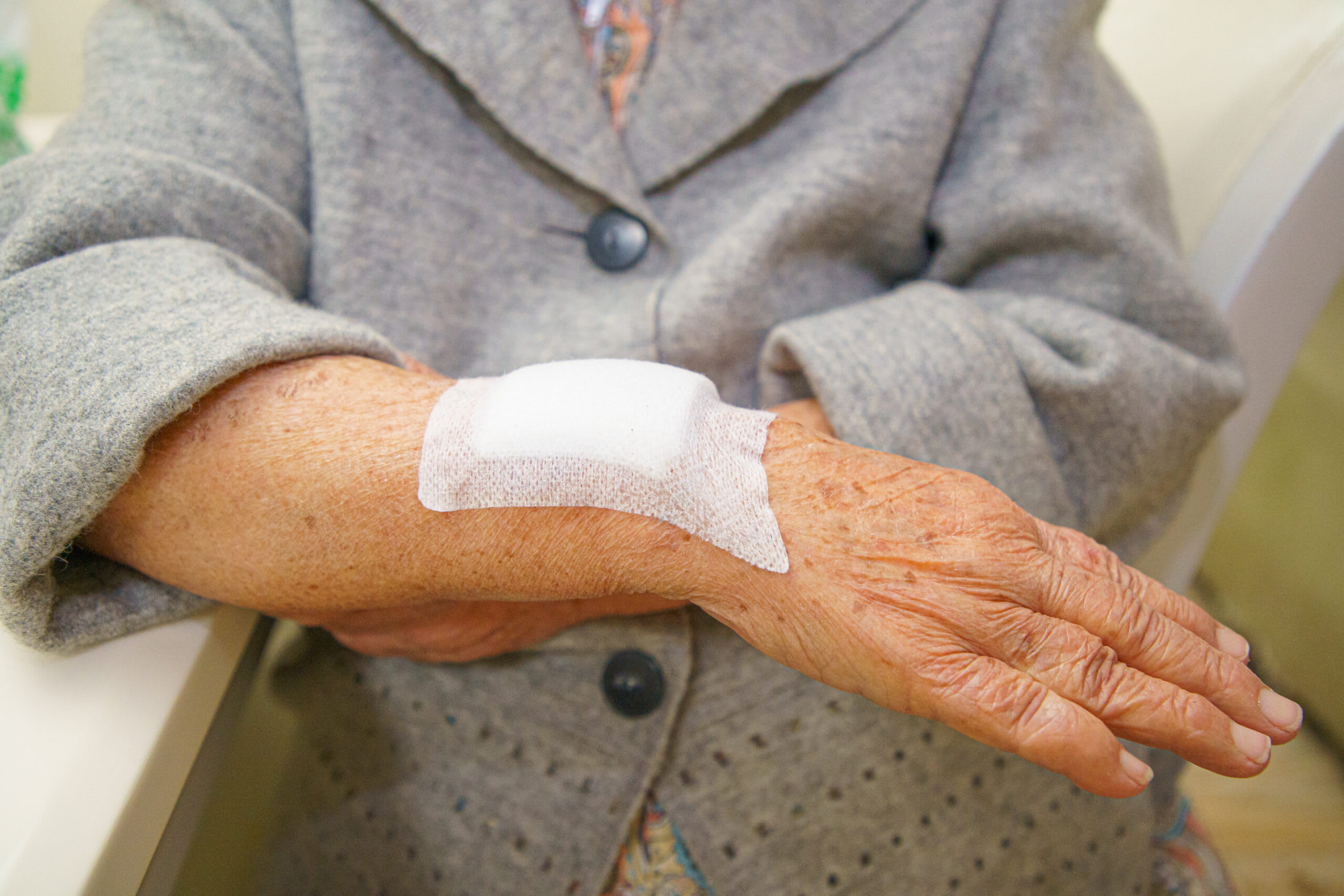
13 min
Last updated October 7, 2024
Explore the reasons behind elderly skin bruising, find proactive steps for bruise prevention, and learn the potential role of bruising in identifying elder abuse.

7 min
Last updated October 3, 2024
Learn the risks involved with UTIs in the elderly and how to identify symptoms, as well as how to prevent these risky infections.

14 min
Last updated October 3, 2024
Ask yourself these important questions to determine if moving your parent in with you is right for them and your family.

5 min
Last updated October 3, 2024
Learn about current medical guidelines for colonoscopy screenings and alternatives to a colonoscopy for seniors 76+.

14 min
Last updated September 20, 2024
Learn about the range of benefits involved, and discover a curated list of high-quality at-home and mobile devices.

5 min
Last updated September 20, 2024
Learn about how insurance covers palliative care and discover alternative ways to cover copays and other palliative care costs.

16 min
Last updated September 17, 2024
Intergenerational activities, such as story times and mentorships, provide social enrichment and bonding between generations.

7 min
Last updated August 22, 2024
High temperatures are dangerous for the elderly. Learn how to keep seniors safe during the summer.

7 min
Last updated August 22, 2024
Weigh the pros and cons of opening a joint bank account with your aging parents.

9 min
Last updated August 14, 2024
Life insurance for seniors can help pay for long-term care, even without long-term care insurance.

6 min
Last updated August 5, 2024
Use these steps to help you cope and plan care for your loved one.

16 min
Last updated August 5, 2024
Learn how a power of attorney can help you make care and financial decisions for a senior loved one as they age.
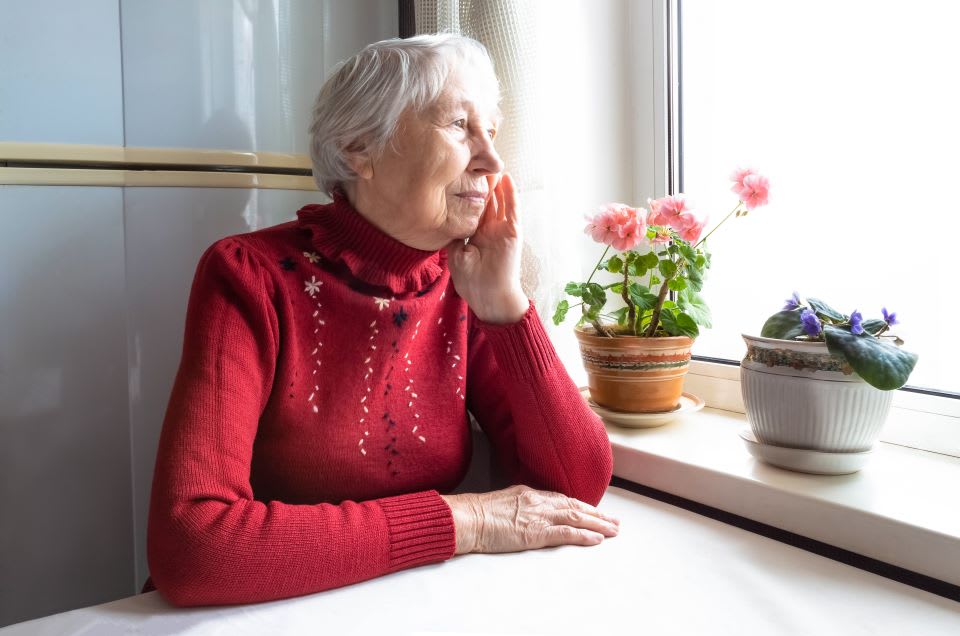
10 min
Last updated July 25, 2024
Learn how to spot and track early signs of dementia in your aging parents. Early diagnosis and proper treatment could help improve their quality of life.

10 min
Last updated July 11, 2024
Learn how to help your elderly loved one lead a healthy lifestyle with these 10 health tips for seniors.
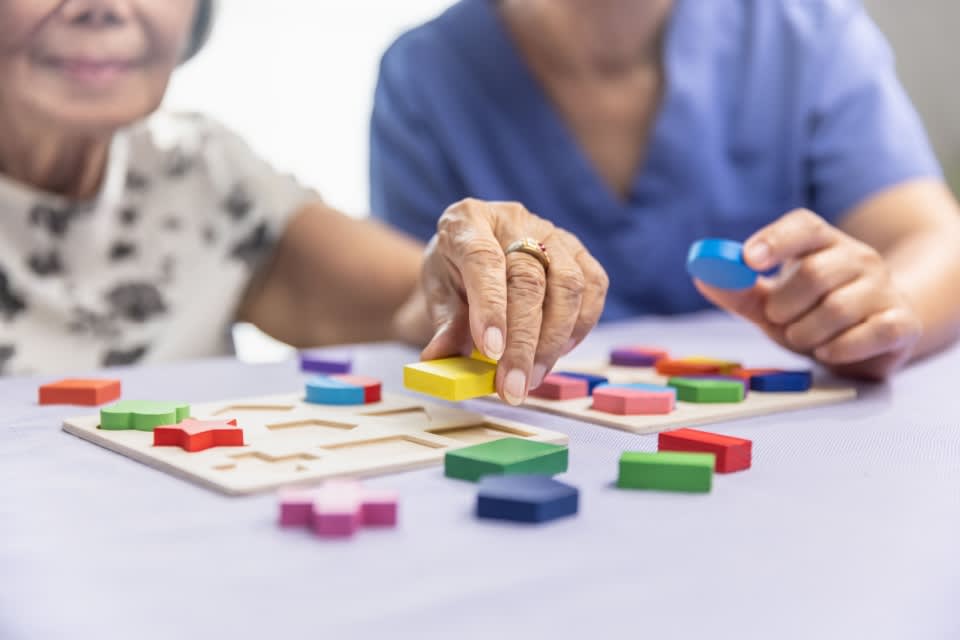
12 min
Last updated July 3, 2024
Explore mentally engaging and calming activities designed specifically for seniors navigating dementia at home.

18 min
Last updated June 27, 2024
Get expert tips on dementia risk factors, signs to look for, how families cope, and more.
17 min
Last updated June 14, 2024
GPS tracking devices can help you find your loved one with dementia if they wander, preventing potentially dangerous situations.
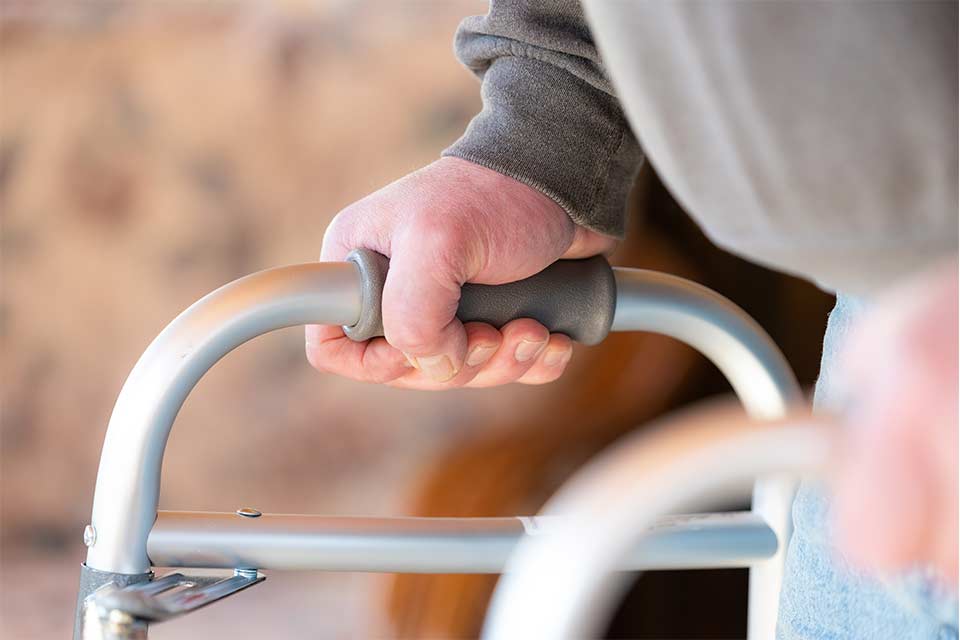
11 min
Last updated June 10, 2024
Read our guide to safely recovering from hip replacement surgery with geriatrics expert Brooke Schmidt, RN, BSN.

1 min
Last updated June 7, 2024
Find information on how your state regulates assisted living, memory care, and independent living communities.

8 min
Last updated June 4, 2024
Sundowning is a common dementia symptom that involves increased agitation, confusion, and more toward the end of the day.
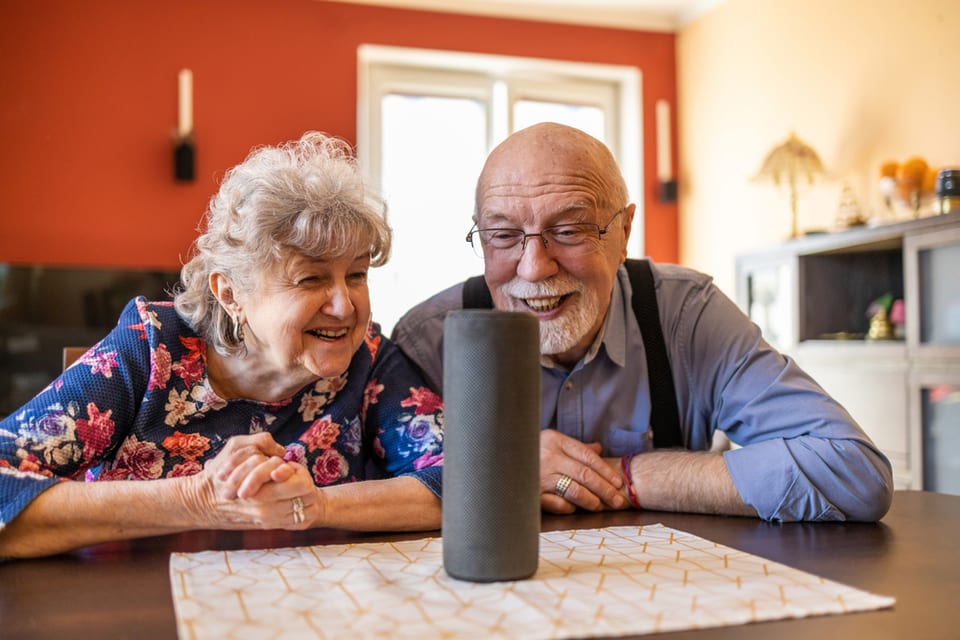
18 min
Last updated June 4, 2024
Learn about how the different features of Alexa can support seniors and family caregivers.

9 min
Last updated May 31, 2024
Catch up on the new 2024 Alzheimer's Association special report and see how it may affect you and your loved ones.

9 min
Last updated May 29, 2024
Learn the connections between medications and dementia risk. Explore the various types of drugs to avoid for the sake of your brain.

16 min
Last updated May 28, 2024
According to the Global Deterioration Scale, dementia has seven stages. Understanding the signs and symptoms of each stage of dementia is key to making good health choices and planning effectively for future care.
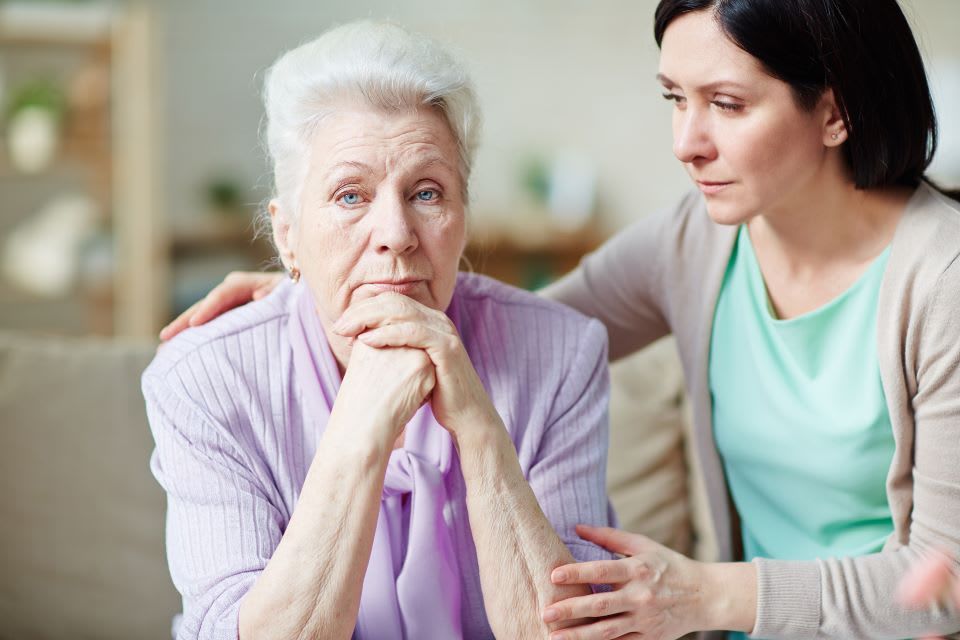
10 min
Last updated May 27, 2024
Living with elderly parents can bring challenges. Learn from firsthand experience how to cope and know when it’s not working.

11 min
Last updated May 23, 2024
Find out whether your loved one’s blood pressure is high with a blood pressure chart. Learn tips to help keep blood pressure within a healthy range.

17 min
Last updated May 22, 2024
Explore helpful strategies to keep the conversation productive and free of judgment on both sides.

15 min
Last updated May 22, 2024
Senior care experts recommend the best dementia caregiving books for inspiration, education, and comfort.

14 min
Last updated May 15, 2024
Explore the following tips on how to help improve medication safety and management for your senior loved one.

13 min
Last updated May 10, 2024
Learn about ways to find meaning in old age and what it means to leave a family legacy.
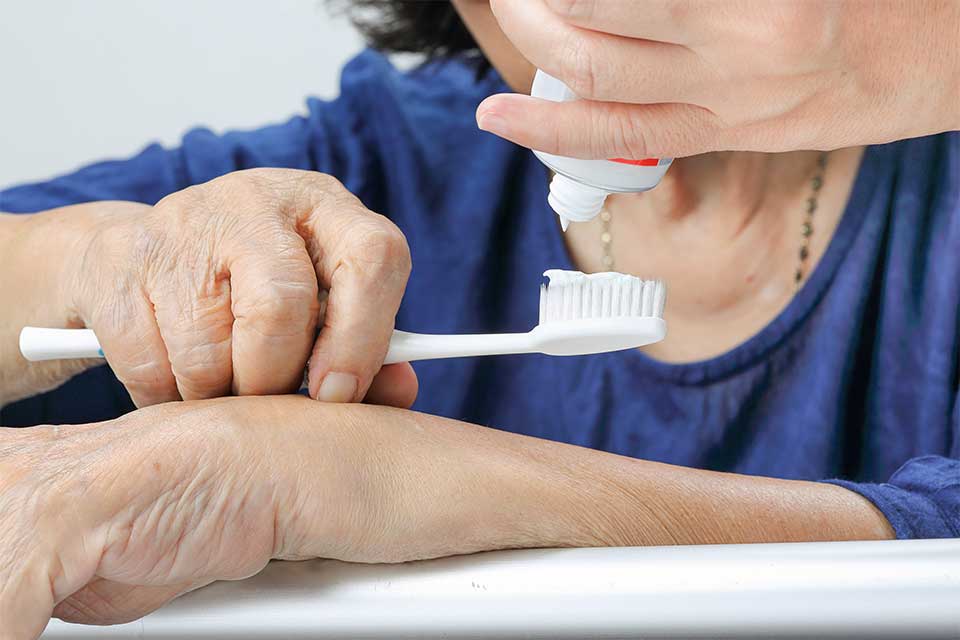
7 min
Last updated May 8, 2024
From bathing to dental care, check out an expert’s tips for helping seniors with their hygiene.

13 min
Last updated May 7, 2024
Senior move managers help families with organizing, downsizing, and the overall planning that comes with moving to senior living.
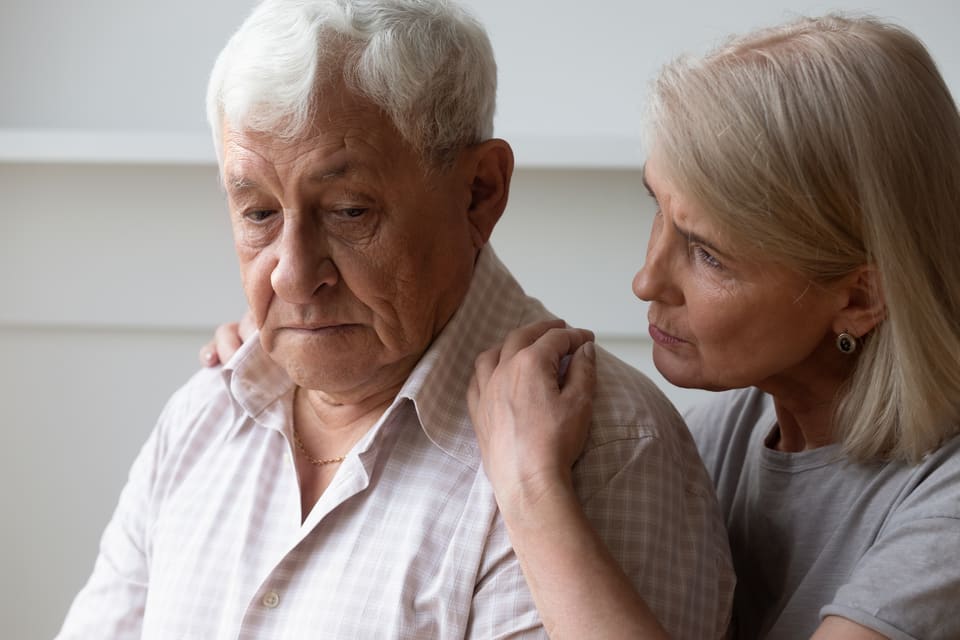
14 min
Last updated May 2, 2024
Ignoring the signs of dementia can be damaging to both you and your loved one. Learn how to respond to dementia symptoms.

24 min
Last updated April 30, 2024
Siblings may disagree on how to best care for aging parents. Learn how to stop these family disputes with communication tips.

38 min
Last updated April 30, 2024
Learn simple recipes that combine fresh produce with pantry staples for filling dishes and drinks that prioritize senior nutrition.

12 min
Last updated April 19, 2024
Discover the causes of insomnia in elderly adults and how to prevent and treat it, including the safest sleep aids to use.

8 min
Last updated April 17, 2024
Explore why an older loved one may stop eating, when to be concerned, and get tips on how to improve their appetite.

17 min
Last updated April 17, 2024
Our comprehensive list of 2024’s best apps for seniors includes apps focused on daily support, health tracking, and entertainment.
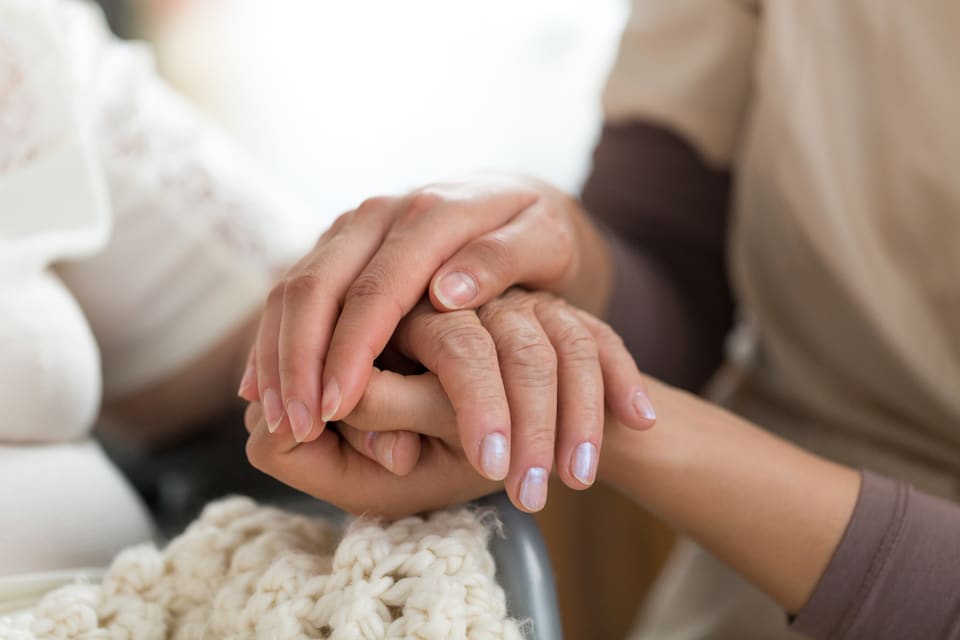
11 min
Last updated April 10, 2024
Mental health issues in the elderly often go unnoticed. Read up on the common causes and symptoms, and learn how you can help.
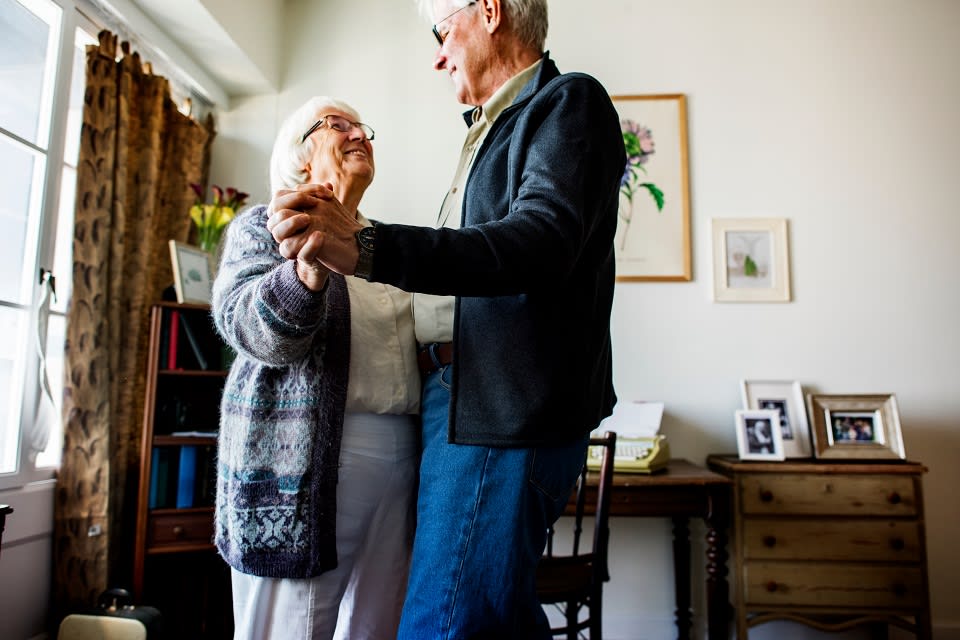
7 min
Last updated March 28, 2024
Staying active is important for health. Try these fun winter activities and hobbies for the elderly.

23 min
Last updated March 15, 2024
Learn about the variety of foods that can help delay the onset of dementia while also improving general health in seniors.

5 min
Last updated March 14, 2024
Reasoning with a person with dementia isn’t always easy. Learn how to redirect a loved one and why the technique calms them.

16 min
Last updated March 14, 2024
Assistive devices are fantastic resources to help seniors maintain their independence in daily activities.
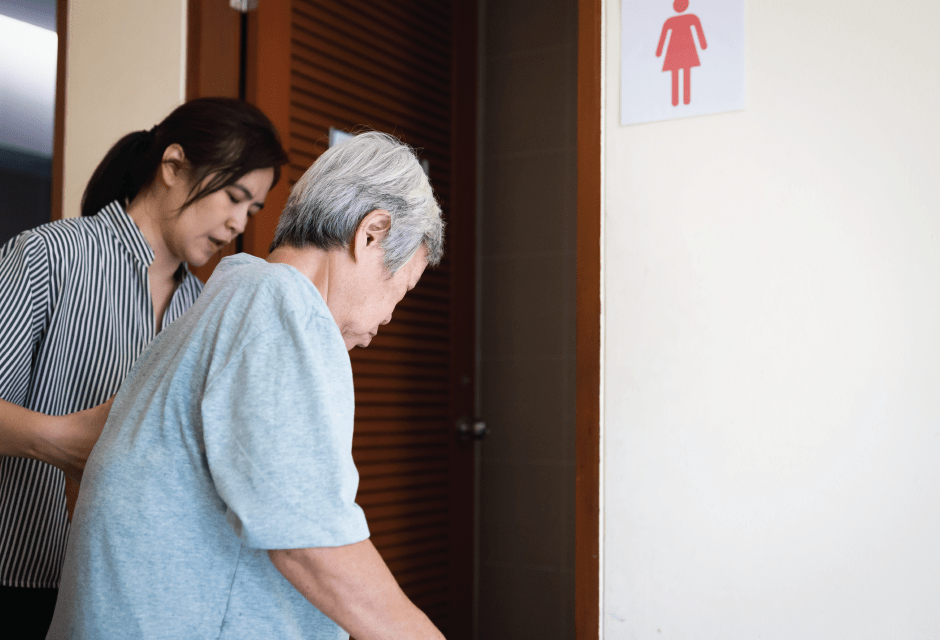
14 min
Last updated March 14, 2024
Many seniors experience urinary incontinence. Learn what causes incontinence, the different, treatment options, and more.

9 min
Last updated March 13, 2024
Music can help people with dementia recall positive memories, regulate their emotions, and socialize.

14 min
Last updated March 8, 2024
Use these tips to safely and efficiently travel as a senior or with a senior.

13 min
Last updated March 7, 2024
Learn how classic games like bingo, solitaire, and sudoku can help improve seniors' brain function and memory.

13 min
Last updated March 5, 2024
Adult children are often the first line of support for a grieving parent in the immediate aftermath of a loss.

9 min
Last updated March 5, 2024
Learn how seniors can stay independent by using ride-hailing services such as Uber and Lyft.

4 min
Last updated February 28, 2024
These are the best free courses for family caregivers online in 2024.

7 min
Last updated February 22, 2024
People don’t die of old age, but old age can make people more likely to die from disease or injury.
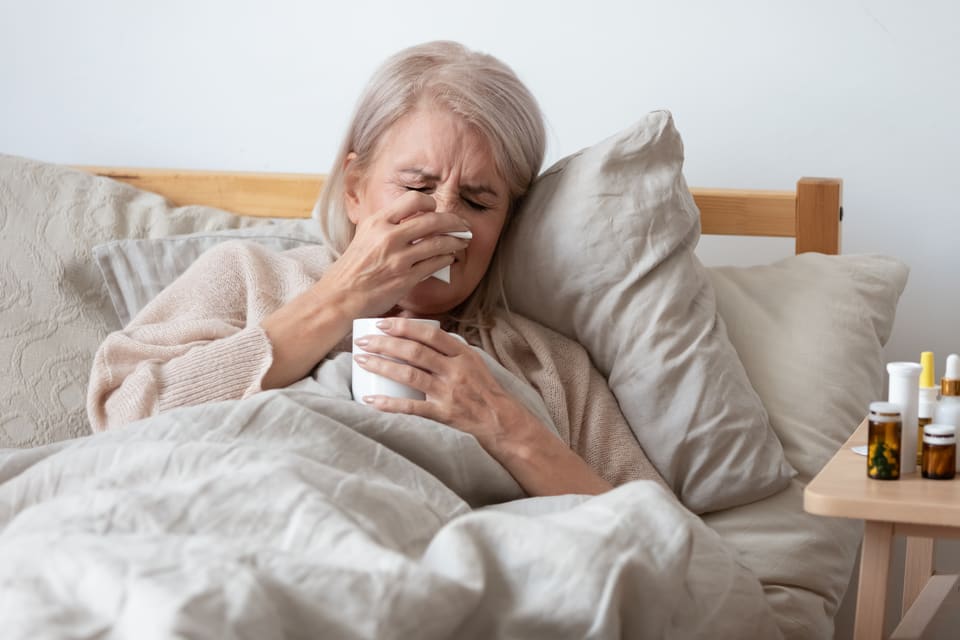
14 min
Last updated February 22, 2024
Learn more about common infections that affect the elderly and how to prevent and treat them effectively.
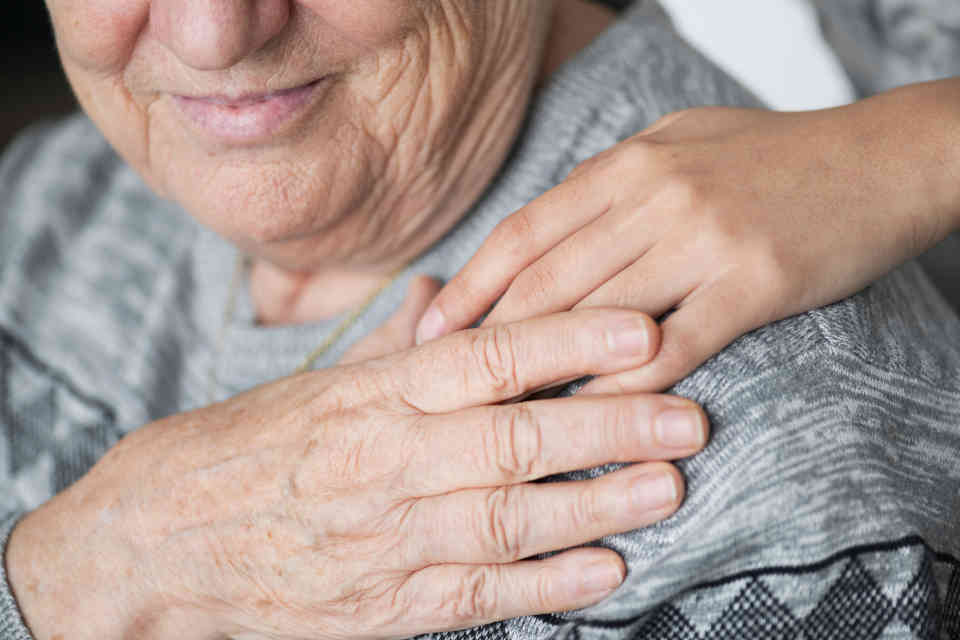
9 min
Last updated February 22, 2024
There are things you can say or write to help you and your loved one feel more at peace.

15 min
Last updated February 15, 2024
Use these expert suggestions to craft a flavorful, diabetic-friendly meal plan for your senior loved one.

17 min
Last updated February 15, 2024
Read advice from couples growing old together and get tips for a fun, memorable Valentine's Day.

5 min
Last updated February 14, 2024
Explore the benefits of a power of attorney and the misconceptions related to creating one for your family’s needs.

6 min
Last updated February 12, 2024
Alzheimer's may make it difficult to talk with a loved one like you used to. These tips can help you better communicate.

9 min
Last updated February 5, 2024
Learn how creating a care plan can help caregivers stay organized, lower stress levels, and improve outcomes for aging loved ones.

12 min
Last updated January 26, 2024
Find support, advice, and sympathy from other caregivers in these online and in-person caregiving support groups.

7 min
Last updated January 22, 2024
Learn about the legal documents that are important to helping your aging parent plan for care, assistance and end-of-life.

21 min
Last updated January 22, 2024
Learn about the top 12 Alzheimer’s and dementia charities that contribute to cutting-edge research and caregiver support.

15 min
Last updated January 16, 2024
Use these apps to help a loved one with dementia maintain their health, safety, and well-being.
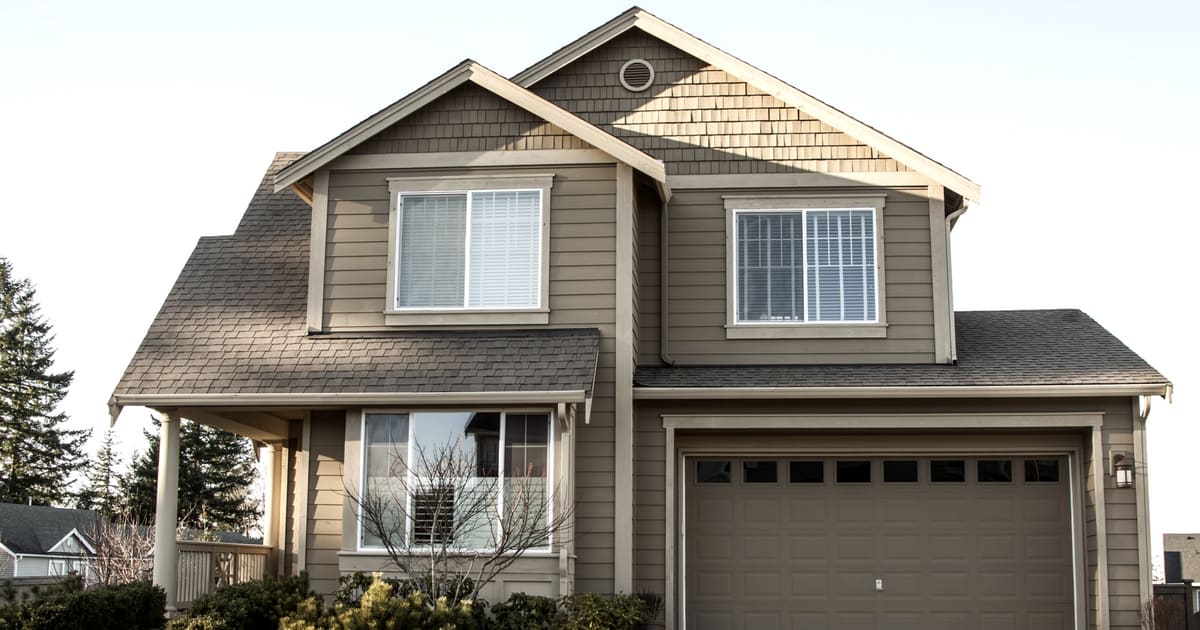
7 min
Last updated January 11, 2024
Learn what to do with a parent’s house after a move to senior living, including details on selling or keeping an inherited home.

7 min
Last updated January 8, 2024
The PACE program may cover some costs of senior care by providing home care, medical care, and therapy services to participants.
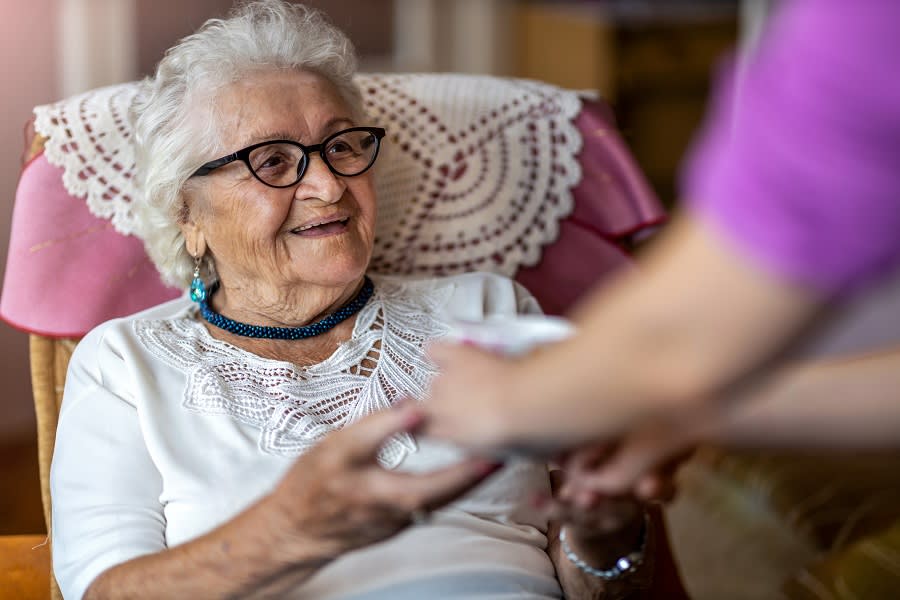
12 min
Last updated January 5, 2024
Treating depression in people with dementia is tricky. Few people with memory loss and dementia respond to anti-depressants, prompting researchers to look for a new way forward. Learn how Problem Adaptional Therapy, or PATH, helps ease depression in seniors with dementia by giving them back some ownership over their environment.

33 min
Last updated January 5, 2024
Browse our list of the best senior-friendly and affordable cellphones and learn how to find the best option for your loved one.

5 min
Last updated January 4, 2024
Lorem ipsum dolor sit amet, consectetur adipiscing elit, sed do eiusmod tempor.

8 min
Last updated January 2, 2024
Learn how to talk to your family about the need for a new caregiving arrangement.

9 min
Last updated January 2, 2024
As a caregiver to a senior, your responsibilities will ultimately depend on your loved one's health, care needs, and preferences.

9 min
Last updated January 2, 2024
Learn the risks of senior driving, safety precautions you can take, and signs that it’s no longer safe for your loved one to drive.

7 min
Last updated December 20, 2023
Learning how to identify and cope with anticipatory grief symptoms while caring for a dying parent can help you both make the most of the time you have together.

20 min
Last updated December 20, 2023
Browse the best overall senior-friendly tablets, and learn how to choose and set up the table that fits your loved one’s needs.

9 min
Last updated December 20, 2023
Learn why it’s important to respect the elderly with practical tips for how to show respect to the senior in your life.

16 min
Last updated December 20, 2023
Get expert tips from a doctor to help you cope with dementia behaviors like confusion and wandering.

14 min
Last updated December 19, 2023
Learn how senior living can help seniors beat senior isolation with social opportunities.

8 min
Last updated December 18, 2023
Medicare and VA health care are government-funded programs that eligible veterans can use in tandem to help pay for senior care.

8 min
Last updated December 15, 2023
Use these 9 free apps to help coordinate care, manage medication, and track symptoms.

9 min
Last updated December 14, 2023
Learn about specific dementia and Alzheimer’s safety risks for seniors living at home. Understanding the risks can help you and other family caregivers prioritize your loved one’s safety.
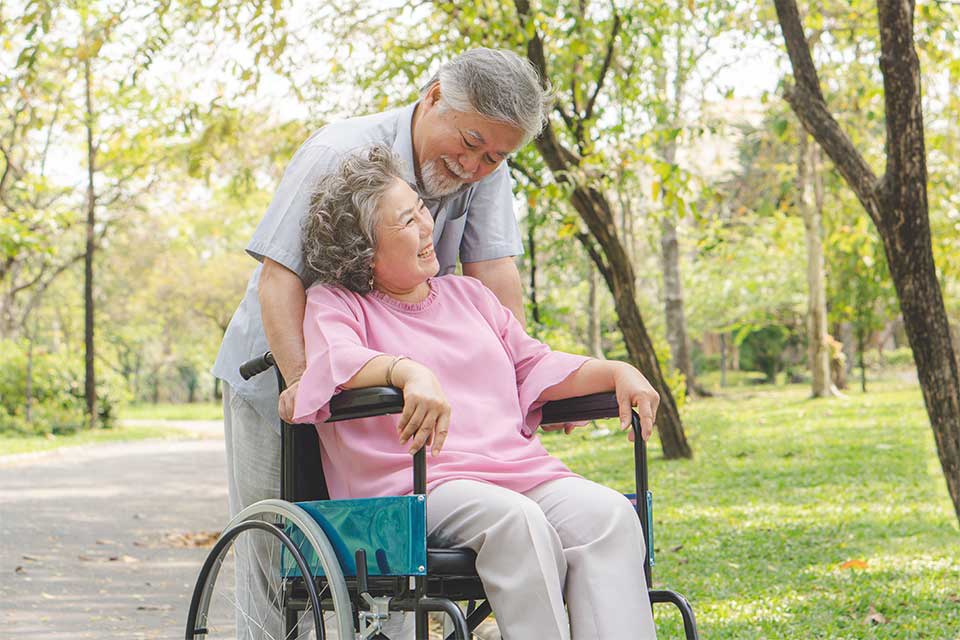
9 min
Last updated December 11, 2023
Dementia poses many health risks for a caregiver. Learn about risks like chronic stress and lack of self-care, and find helpful resources.

14 min
Last updated December 7, 2023
Read about the best exercises for seniors with arthritis, including swimming, wrist bends, and step-ups.
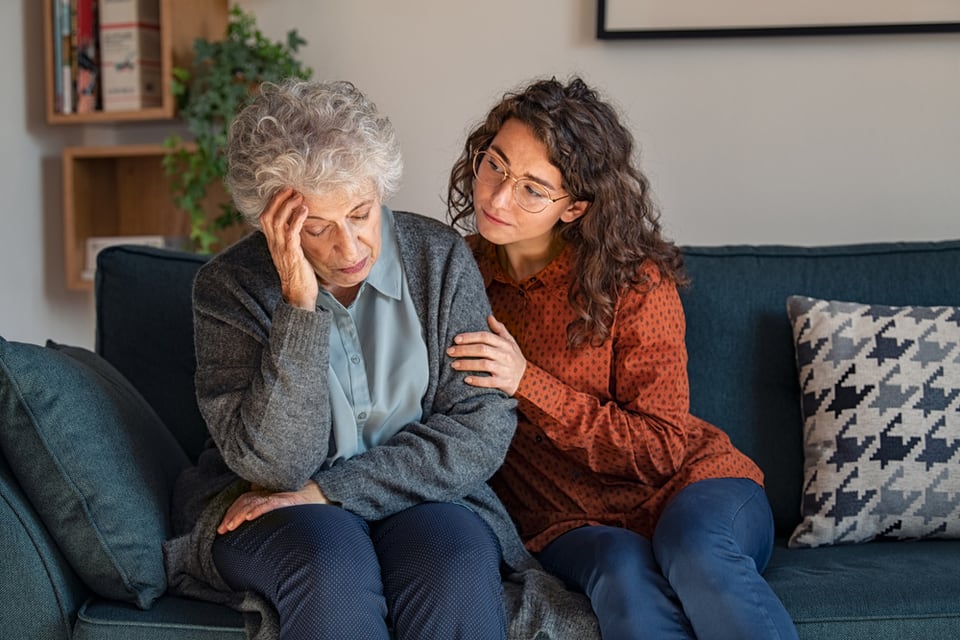
7 min
Last updated December 6, 2023
Learn about the signs of grief, depression, and how to distinguish between the two.

10 min
Last updated December 5, 2023
Geriatric care managers help guide families through senior care options and can also serve as a mediator.

11 min
Last updated December 1, 2023
Handling angry outbursts from an elderly dementia patient can be stressful. Use these tools to help you understand this behavior, and how to respond.
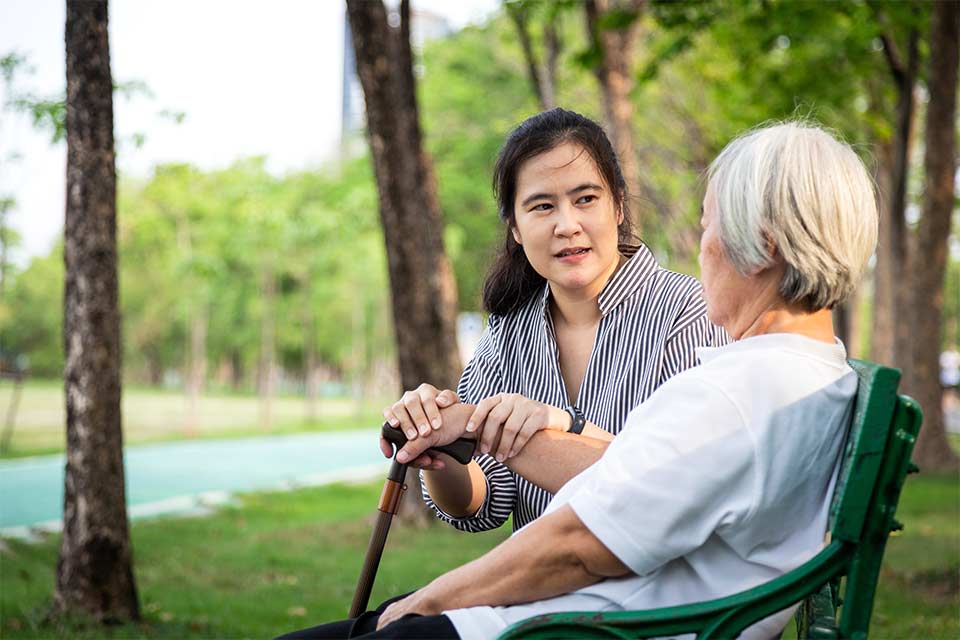
13 min
Last updated November 21, 2023
Being a caregiver for an elderly parent can be more expensive than it seems. You may lose income, job security, and more.

8 min
Last updated October 31, 2023
Grants for dementia patients, like the HFA home care grant covers respite care hours with no cash value.

11 min
Last updated October 12, 2023
Veterans and their spouses may be eligible for VA financial benefits that can help cover costs of senior care. Find out how to apply.

5 min
Last updated September 29, 2023
In certain circumstances, states may place a Medicaid lien on your property. Elder law attorneys can help you determine ways to protect your assets.

6 min
Last updated September 26, 2023
Learn the correlations between your loved one's dementia and their excessive sleeping, and how to help as a caregiver.

5 min
Last updated September 21, 2023
If your parent or a loved one has been diagnosed with a terminal illness, starting the search for hospice care is often the logical next step. Even though it can be hard to think about money during this difficult time, many caregivers will suddenly begin to wonder: Is hospice covered by Medicare? Learn more about what’s covered by Medicare, hospice services and costs, and what your family can expect to pay.

17 min
Last updated September 8, 2023
Learn the most common causes of elderly bowel incontinence, explore treatment options, and learn incontinence care tips.

8 min
Last updated June 20, 2023
Explore the causes, symptoms, and consequences of dehydration in older adults, and discover tips for prevention.

5 min
Last updated May 22, 2023
Palliative care offers comfort and support for seniors navigating serious or long-term illnesses. Find out whether Medicare pays for the cost of palliative care, and learn which aspects of your loved one’s palliative care will be covered at home.

7 min
Last updated May 19, 2023
Find out how you can use the Medicaid child caregiver exemption to take ownership of your parent’s home. This exemption maintains Medicaid eligibility while protecting the home as an asset.

9 min
Last updated May 12, 2023
Learn how caregivers of veterans can qualify for financial assistance and other support services through the VA family caregiver program.

6 min
Last updated May 12, 2023
This Veterans Day, honor senior veterans by sharing their stories and hosting heartfelt activities that make them feel appreciated.

15 min
Last updated May 5, 2023
Up to 50% of people with dementia report sleep disturbances, and their caregivers’ sleep suffers as a result. Learn why dementia causes sleep problems and some tried and true tips for improving the quality of your loved one’s sleep, such as managing chronic pain and establishing calming bedtime routines.

10 min
Last updated May 4, 2023
Learn about the many pay options available for covering some or all of the costs of hospice care in a nursing home, and get tips for finding private funding for hospice care expenses.

5 min
Last updated May 1, 2023
Many seniors prefer receiving hospice care within the comfort of their home. Fortunately, several types of funding sources, including Medicare and Medicaid, can help pay for care in this setting.

6 min
Last updated March 23, 2023
Learn about the risk factors for elderly suicide and tips for improving elderly mental health.

8 min
Last updated February 27, 2023
Home care after hip replacement surgery can help an older adult recover in the comfort of their own home. Learn top tips for providing home care after surgery.

4 min
Last updated January 10, 2023
Learn about the connection between a dark, altered sense of humor and dementia.

19 min
Last updated November 28, 2022
Discover unique activities for seniors during social distancing, and learn expert tips from communities.
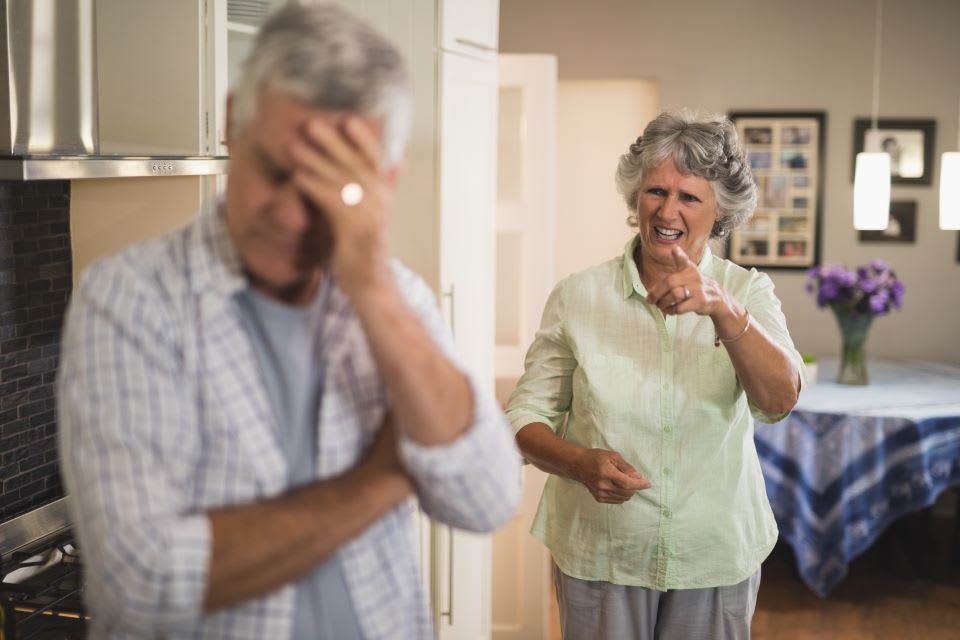
10 min
Last updated October 12, 2022
Helpful suggestions on how to safely respond to dementia-related delusions.

3 min
Last updated October 11, 2022
Learn why the CLASS Act, a potential public insurance program, wasn't implemented, plus what measures are in place to assist low-income seniors.

12 min
Last updated October 11, 2022
Understand how to care for those with dementia experiencing agitation.

8 min
Last updated October 10, 2022
Understand the connection between dementia and hallucinations.

9 min
Last updated October 4, 2022
Learn about common behavioral disturbances in seniors with dementia, as well as their causes and how best to respond to them.

14 min
Last updated October 4, 2022
Agitation can be a common symptom of dementia. Discover how best to calm your loved one exhibiting this behavior.
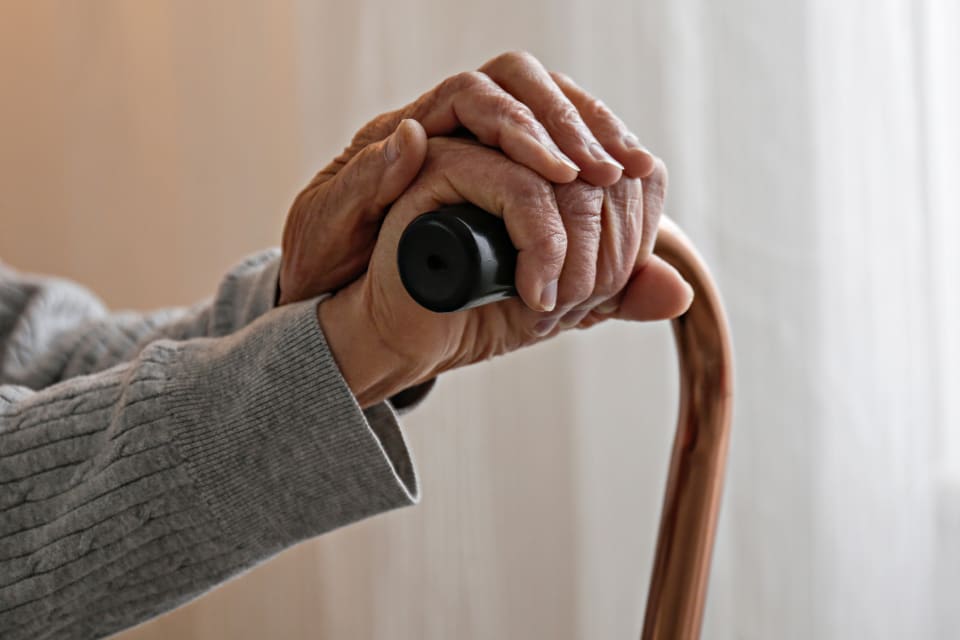
23 min
Last updated September 21, 2022
Learn about senile arthritis, what type of arthritis is most common in the elderly, and how to treat.

8 min
Last updated September 13, 2022
Read about common symptoms of end-stage dementia so you can plan ahead.

17 min
Last updated September 13, 2022
Dementia is not a normal part of the aging process. But how do you know if it's dementia or just old age?

11 min
Last updated September 13, 2022
While delirium and dementia seem similar, delirium is a temporary mental state while dementia is a disease. Learn more about the differences between delirium and dementia and how you can help a loved one who may be experiencing delirium.
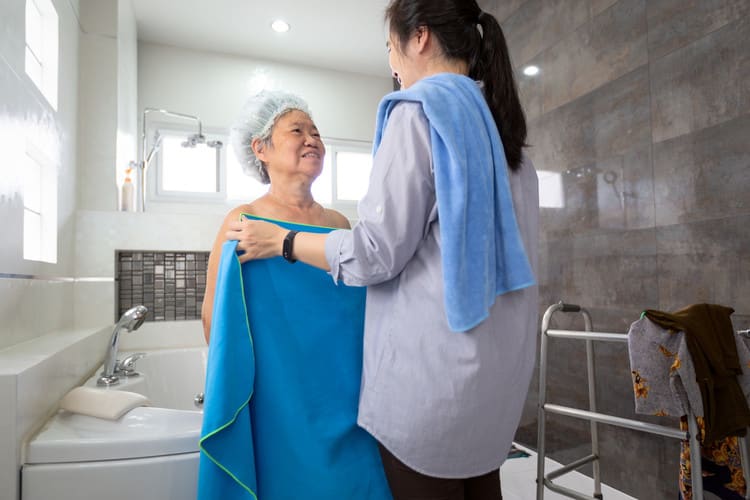
16 min
Last updated September 12, 2022
Bathing a loved one with dementia often poses a challenge. These tips and advice can help make it a bit easier.
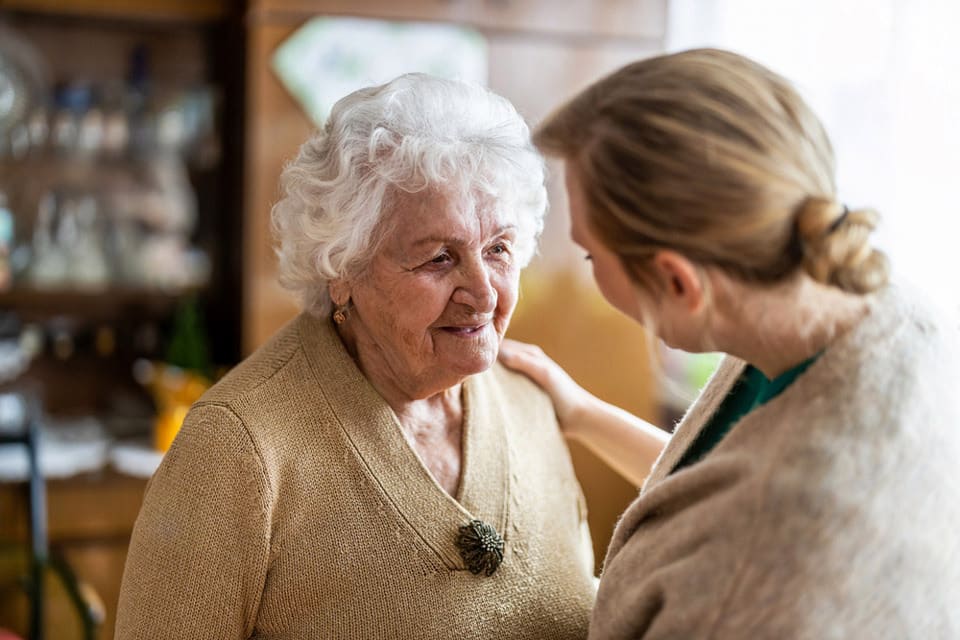
17 min
Last updated September 12, 2022
There are many reversible conditions that mimic dementia symptoms. Learn about the conditions and potential treatments.

7 min
Last updated September 12, 2022
Learn about fatal complications of dementia.

11 min
Last updated September 6, 2022
Learn about what the sudden worsening of dementia symptoms can mean for a loved one.

9 min
Last updated July 19, 2022
There’s growing evidence for a connection between bipolar disorder and dementia. With a list of shared symptoms, it can be challenging to understand your loved one’s needs. Learn about the link between bipolar disorder and dementia, and how to differentiate your loved one’s symptoms.

9 min
Last updated June 1, 2022
Dementia flowers help raise awareness of the disease, recognize caregivers, and signify hope.

7 min
Last updated June 1, 2022
Dementia hotlines can provide education, emotional support, and information about services in your area.

13 min
Last updated May 23, 2022
Paranoia in elderly individuals can lead to agitation if left untreated, learn how to identify the signs.

7 min
Last updated May 11, 2022
Discover the best dog breeds for someone with Alzheimer's or dementia.

10 min
Last updated May 4, 2022
Playing card games can improve memory, cognitive skills, and socialization for people with dementia.
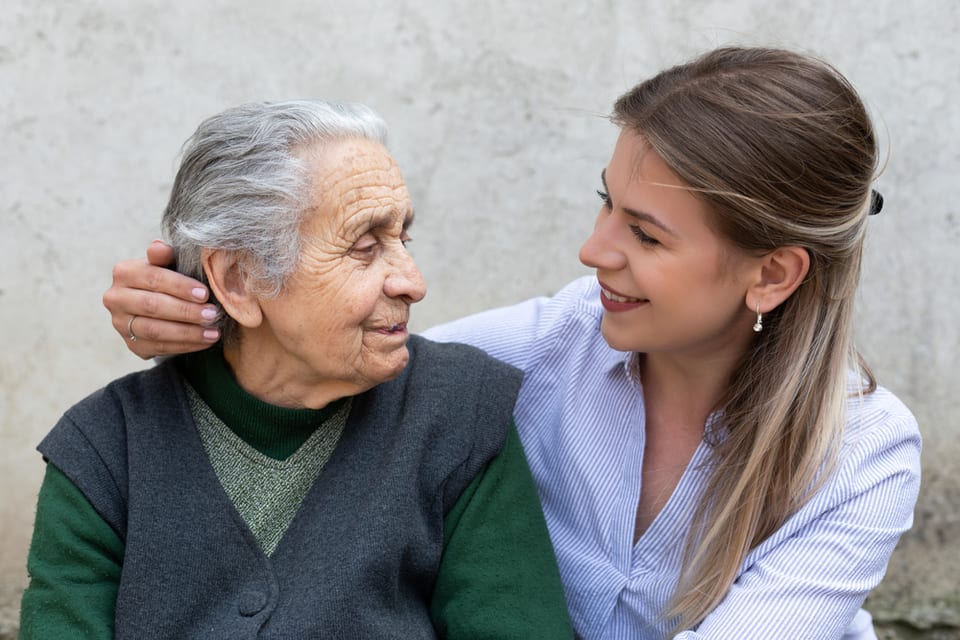
9 min
Last updated May 2, 2022
Learn about benefits such as employer-sponsored caregiver resources, time off, or financial support.

8 min
Last updated April 28, 2022
Memory care education resources and training can help caregivers provide the best dementia care possible.

9 min
Last updated April 26, 2022
Seniors who live alone and have multiple medical conditions may find patient advocates very useful.

7 min
Last updated April 25, 2022
Learn about acute and chronic bronchitis in the elderly and what you can do to help prevent and treat it.

11 min
Last updated April 22, 2022
A health care proxy handles medical decisions, while a power of attorney handles financial decisions.
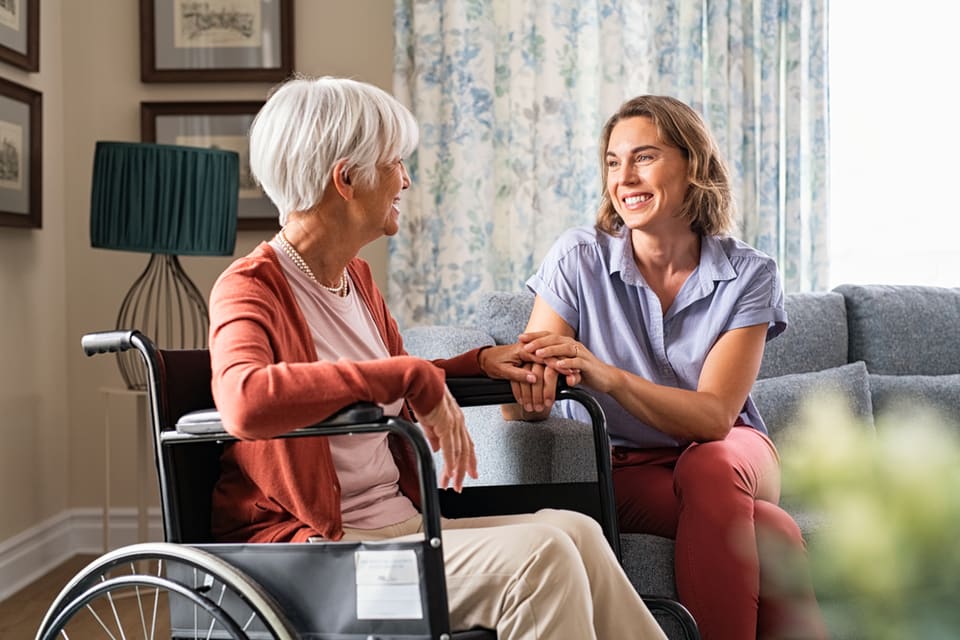
10 min
Last updated April 21, 2022
Learn more about the potential benefits and drawbacks of the certification process for family caregivers.

19 min
Last updated April 5, 2022
Understand the kinds of dementia care training and certifications memory care staff typically receieve.

8 min
Last updated March 24, 2022
Pet trusts allows owners to set aside funds for the pet’s care and appoints someone to be their new owner.
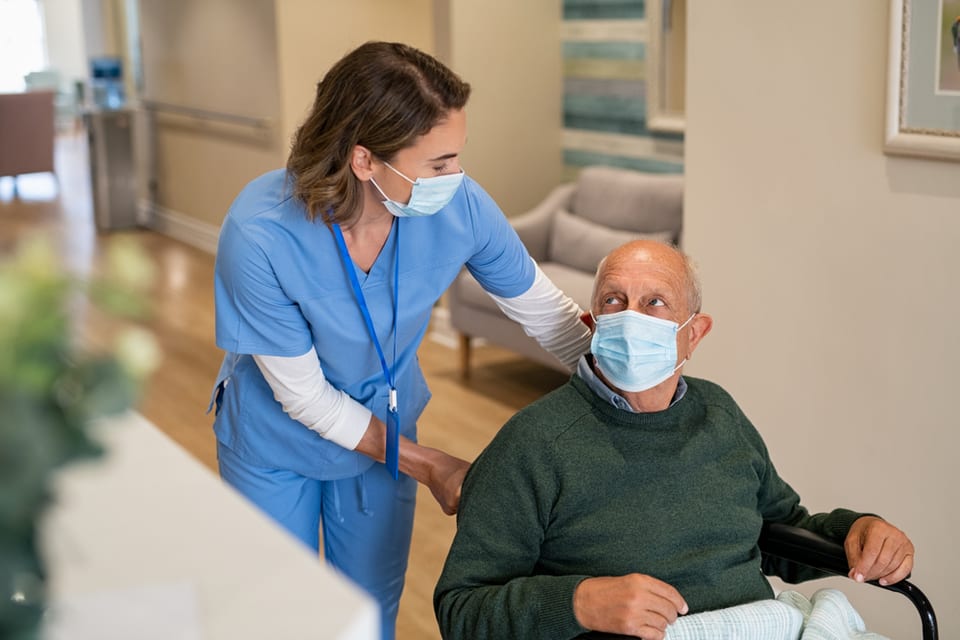
8 min
Last updated March 4, 2022
Senior living facilities have a variety of mobility features to meet accessibility and safety needs.
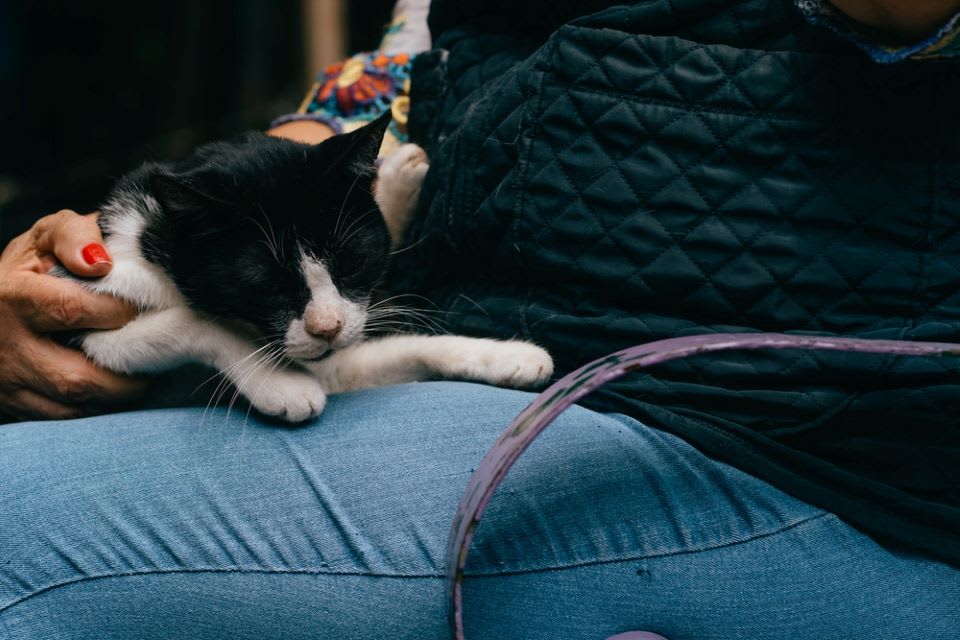
9 min
Last updated March 4, 2022
Changes brought by aging may lessen a parent’s ability to care for pets.

5 min
Last updated March 2, 2022
It can be difficult to choose gifts for a mom with dementia, this list of 10 Mother's Day gifts can help.

6 min
Last updated March 2, 2022
Incorporating healthy habits enables you to boost your energy and maintain an active lifestyle as you age.

22 min
Last updated February 28, 2022
Learn about the best weight lifting exercises for seniors, the benefits, and how to incorporate exercises.
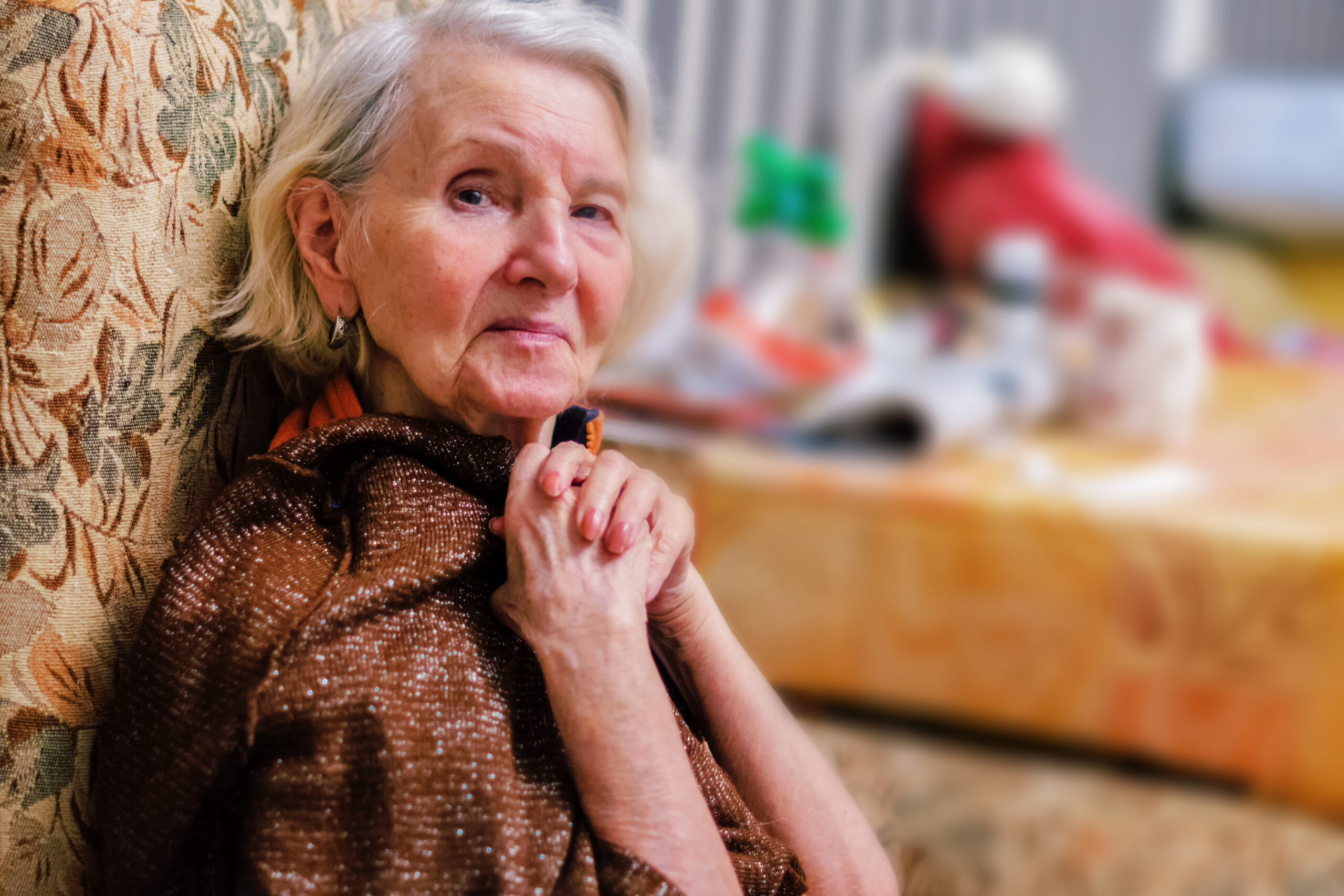
23 min
Last updated February 24, 2022
Learning about Parkinson's is the first step in ensuring a loved one receives the best support possible.

13 min
Last updated February 18, 2022
Relocation stress syndrome is a set of symptoms that occur when an individual changes environments.

10 min
Last updated February 14, 2022
Learn about MRSA prognosis in the elderly.
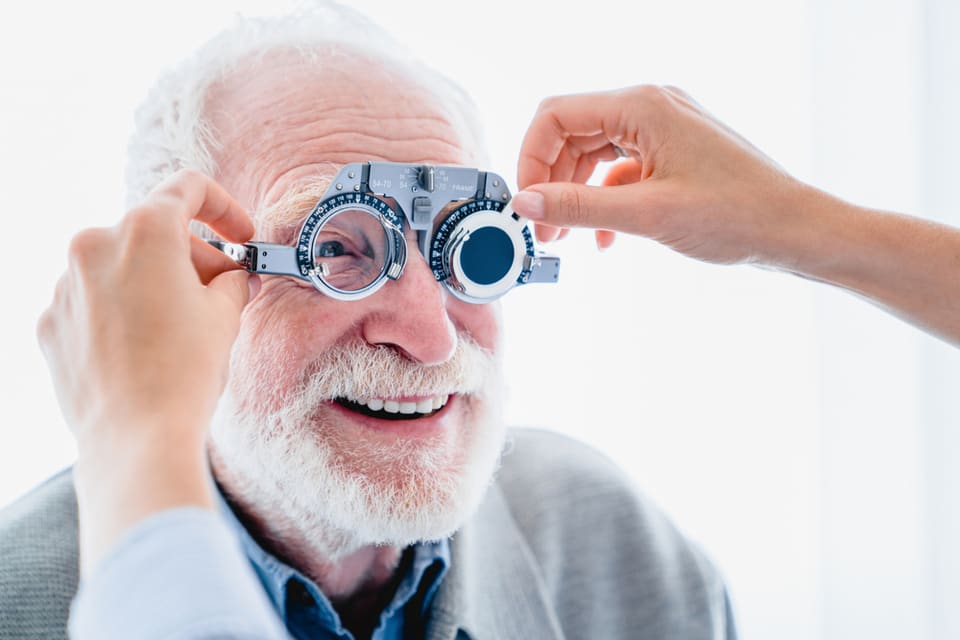
6 min
Last updated January 31, 2022
Although anyone can get glaucoma, older adults are at higher risk of developing it.

6 min
Last updated January 12, 2022
Learn symptoms of vitamin D deficiency in elderly adults and the recommended dose of vitamin D.

18 min
Last updated December 17, 2021
Learn how to talk to your loved one about advance directives and living wills.

18 min
Last updated December 16, 2021
Things you can do help your aging loved one if you think they're lonely.

9 min
Last updated December 7, 2021
Learn what geriatricians do, what to expect during a visit, and when it’s time to see a geriatrician.

10 min
Last updated November 18, 2021
Observe your loved one to understand whether or not they need help. Signs include sudden weight loss, expired food, and becoming more irritable.

11 min
Last updated November 17, 2021
Learn risk factors for polypharmacy in the elderly and common symptoms of polypharmacy.

8 min
Last updated October 8, 2021
Learn strategies to help you speak to your loved one's doctors, define your role, and form a care team.

7 min
Last updated October 5, 2021
These six tips can help with the transition, from downsizing and focusing on the positives to finding new health care providers.

6 min
Last updated October 2, 2021
Learn how technology for seniors improves health and safety and provides entertainment.

10 min
Last updated September 18, 2021
Dogs can bring companionship, health benefits, and a little extra joy to seniors and retirees. Learn which breeds are best for aging adults.

5 min
Last updated September 2, 2021
Help your older loved one stay rested with these foods that help you sleep and tips on foods to avoid.

6 min
Last updated August 12, 2021
Some memory loss is normal, but for people with dementia, it becomes a severe problem. While there is no cure for dementia, this guide outlines research-backed lifestyle changes that can improve memory and prevent some memory loss.

9 min
Last updated August 5, 2021
Scents are strongly linked to memory, and this is especially true for dementia patients. Learn how some memory care communities use aromatherapy to help seniors with dementia, and how these practices can be used at home.

5 min
Last updated July 23, 2021
A Cleveland Clinic physician weighs in on the benefits of mindfulness activities for older adults.

11 min
Last updated July 18, 2021
Learn about differences between women caregivers and male caregivers, and how to make care equitable.

6 min
Last updated June 9, 2021
Read to learn more about fun and challenging products that keep the mind sharp.

4 min
Last updated April 23, 2021
Growing p improves mood, lowers anxiety, and increases wellness. Learn about the benefits of gardening.

7 min
Last updated March 29, 2021
Discover why you may need a caregiver contract. Learn the benefits of a contract, what to include, and how to create one.
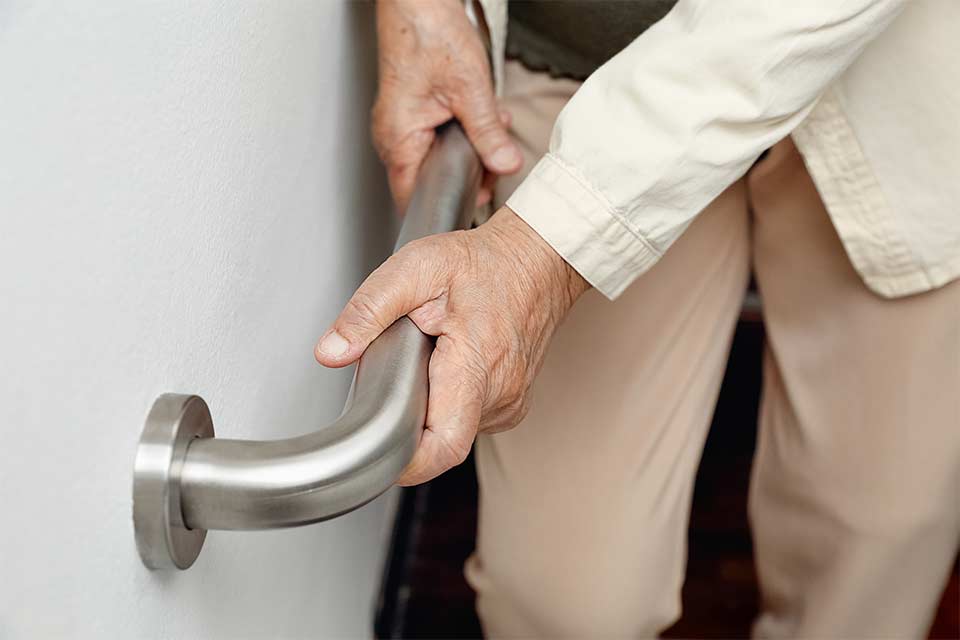
9 min
Last updated March 20, 2021
Falls can be disastrous for older adults. Learn about common fall risks and how to prevent falls for elderly adults in your care.

5 min
Last updated March 9, 2021
As you age, your immune system weakens. Here are strategies to give seniors' immune system a boost.
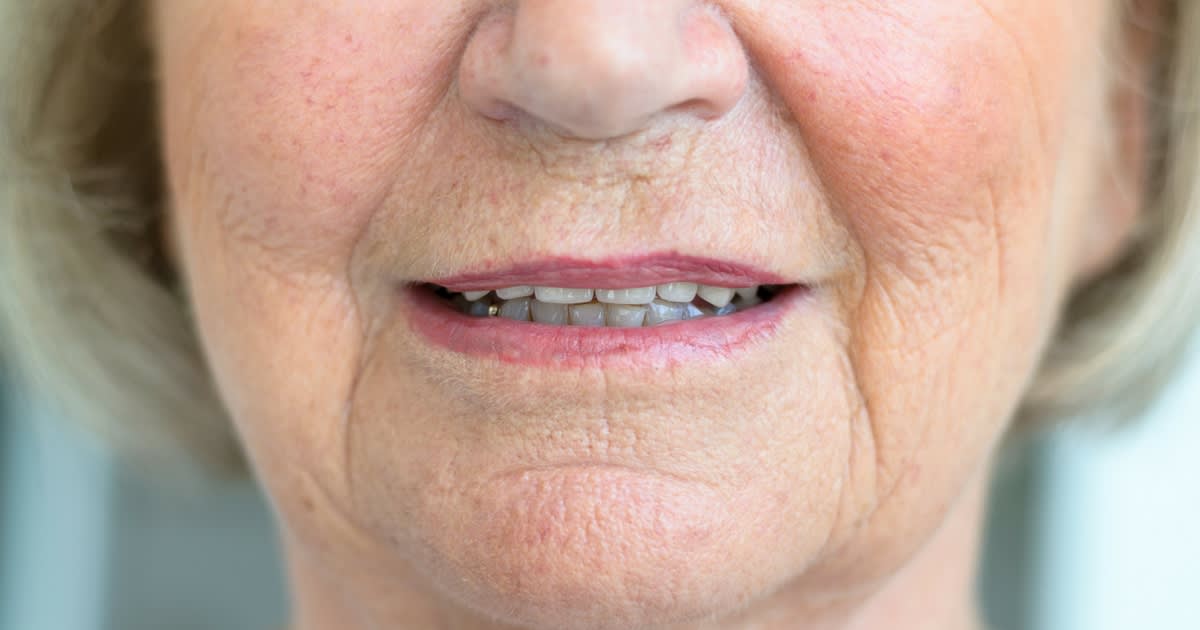
5 min
Last updated September 4, 2020
Senior dental health is connected to whole-body health, so it's important seniors maintain oral health.

9 min
Last updated August 22, 2020
The best cars for seniors take advantage of technologies to protect drivers and ease the task of driving.

5 min
Last updated August 21, 2020
The death of a loved one is a painful experience, but compassion from others can prove transformative.

7 min
Last updated August 20, 2020
Bedsores are the result of long-term pressure on one area of skin.

7 min
Last updated August 7, 2020
COPD is the fourth leading cause of death in the U.S. Learn what causes COPD, who’s at risk, how to identify symptoms, and how it's treated.

5 min
Last updated August 6, 2020
Understand POA options and answer six questions to see if you’re ready for power of attorney duties.

6 min
Last updated August 3, 2020
Cultural attitudes toward aging vary, from American senior communities to caregiving in other countries.

7 min
Last updated July 8, 2020
Learn about the symptoms of depression in elderly adults and available treatments.

10 min
Last updated July 7, 2020
Learn key tips to ease stress the sandwich generation often confronts.

4 min
Last updated July 3, 2020
Mediation can reduce tension when caring for elderly parents and lead to family conflict resolution.

8 min
Last updated June 11, 2020
Learn common signs of senior abuse, emotional abuse, and domestic violence.

8 min
Last updated May 13, 2020
Stroke is preventable and acting at the first sign of a stroke is key to survival and successful recovery.

4 min
Last updated March 12, 2019
Lorem ipsum dolor sit amet, consectetur adipiscing elit, sed do eiusmod tempor.

6 min
Last updated February 22, 2019
Lorem ipsum dolor sit amet, consectetur adipiscing elit, sed do eiusmod tempor.
6 min
Last updated March 27, 2018
Read our tips for what to say during this difficult time.
4 min
Last updated January 29, 2018
Lorem ipsum dolor sit amet, consectetur adipiscing elit, sed do eiusmod tempor.
3 min
Last updated October 18, 2017
Lorem ipsum dolor sit amet, consectetur adipiscing elit, sed do eiusmod tempor.
4 min
Last updated December 20, 2016
Lorem ipsum dolor sit amet, consectetur adipiscing elit, sed do eiusmod tempor.

7 min
Last updated September 26, 2016
Lorem ipsum dolor sit amet, consectetur adipiscing elit, sed do eiusmod tempor.
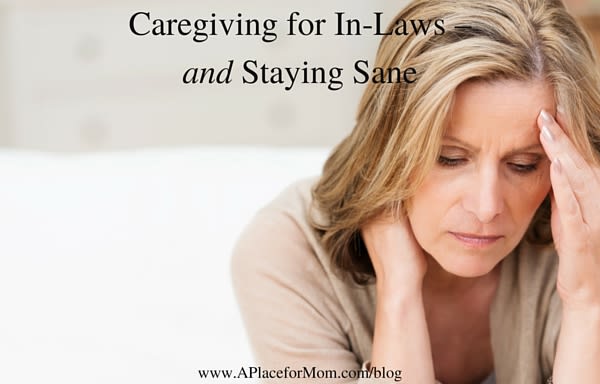
10 min
Last updated July 26, 2016
Lorem ipsum dolor sit amet, consectetur adipiscing elit, sed do eiusmod tempor.

4 min
Last updated June 2, 2016
Lorem ipsum dolor sit amet, consectetur adipiscing elit, sed do eiusmod tempor.
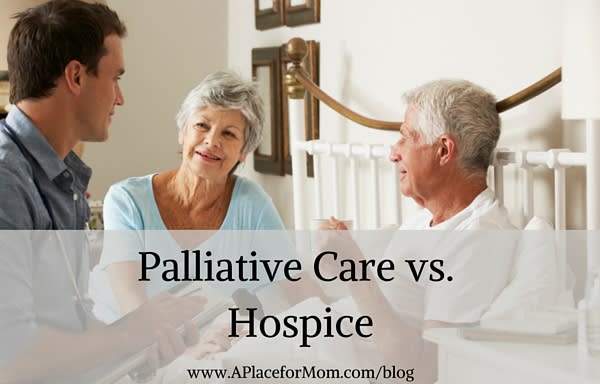
2 min
Last updated January 5, 2016
Lorem ipsum dolor sit amet, consectetur adipiscing elit, sed do eiusmod tempor.
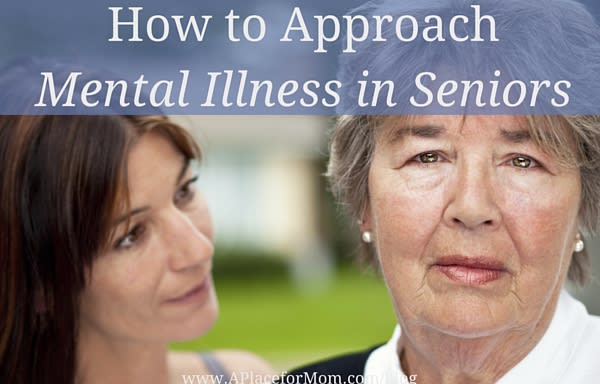
8 min
Last updated September 10, 2015
Lorem ipsum dolor sit amet, consectetur adipiscing elit, sed do eiusmod tempor.

6 min
Last updated February 10, 2015
Lorem ipsum dolor sit amet, consectetur adipiscing elit, sed do eiusmod tempor.
Tips and support for caregiversJoin the 500,000+ caregivers who receive our weekly senior care newsletter.Thank you! Enjoy weekly tips and support.
Sign up for our newsletterGet insights and articles in your inbox.Thank you! Enjoy weekly tips and support.Contact us530 Fifth Avenue, New York, NY 10036
A Place for Mom is paid by our participating communities, therefore our service is offered at no charge to families. Copyright © 2025 A Place for Mom, Inc. All Rights Reserved. Privacy & Terms. Do Not Sell My Personal Information.
Who we are
Top Cities
